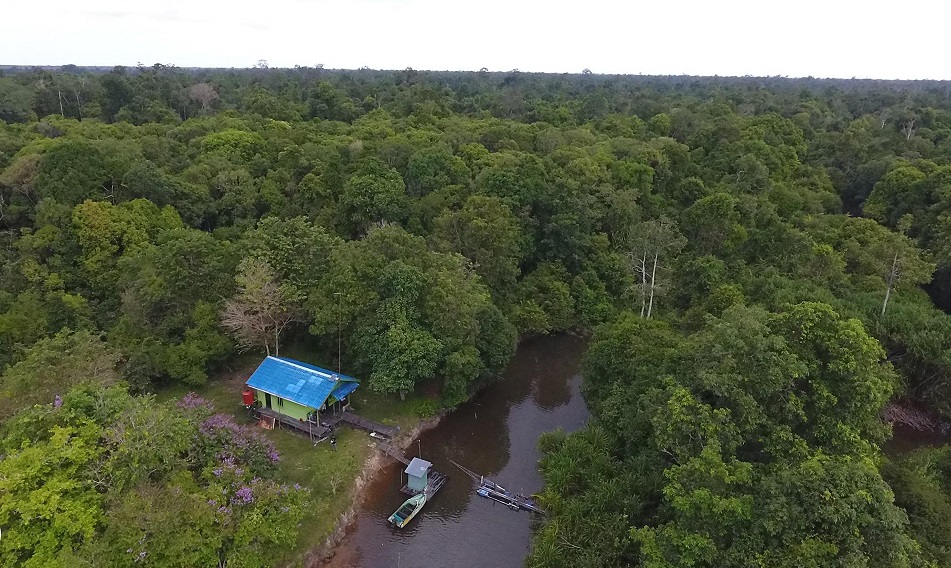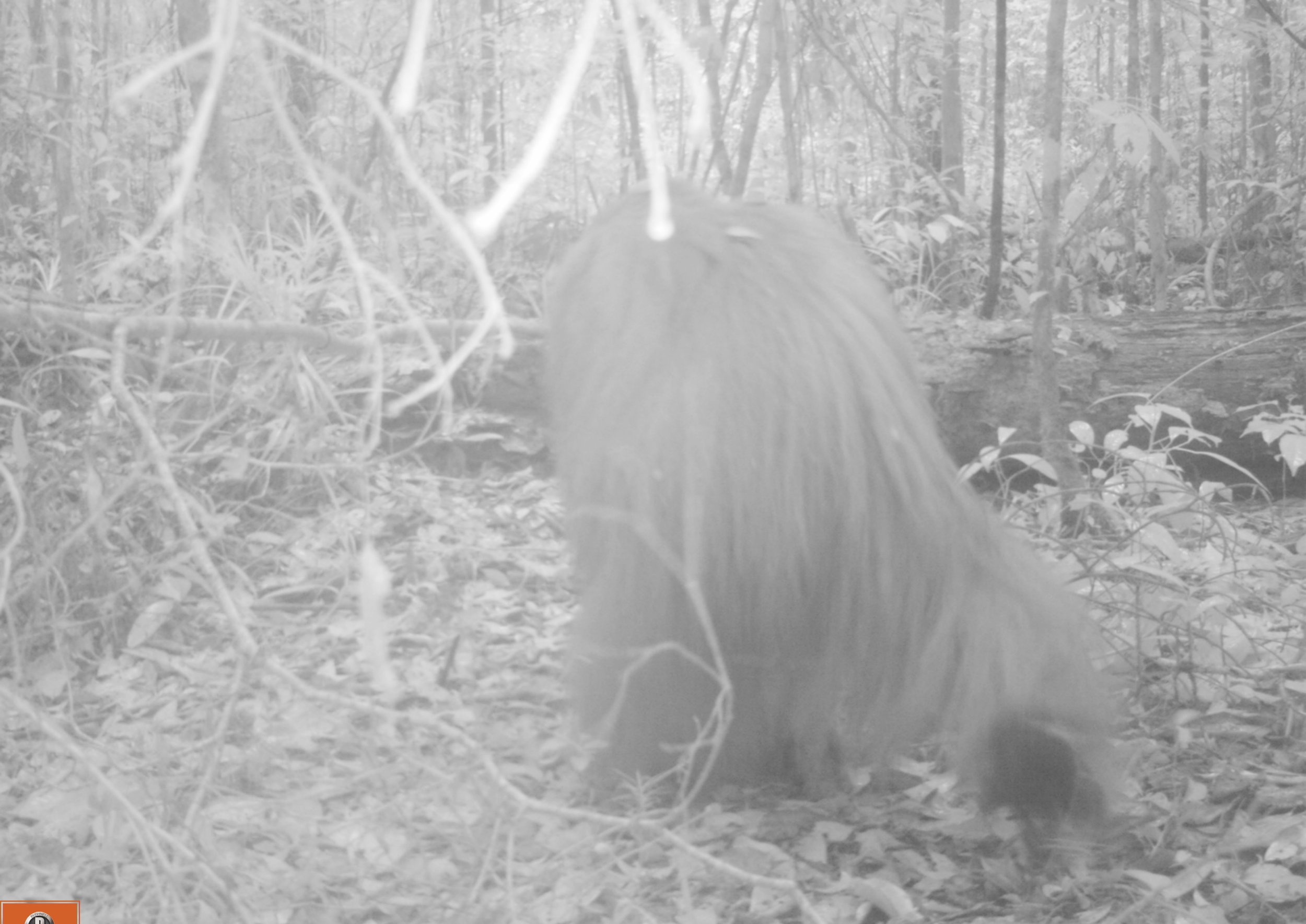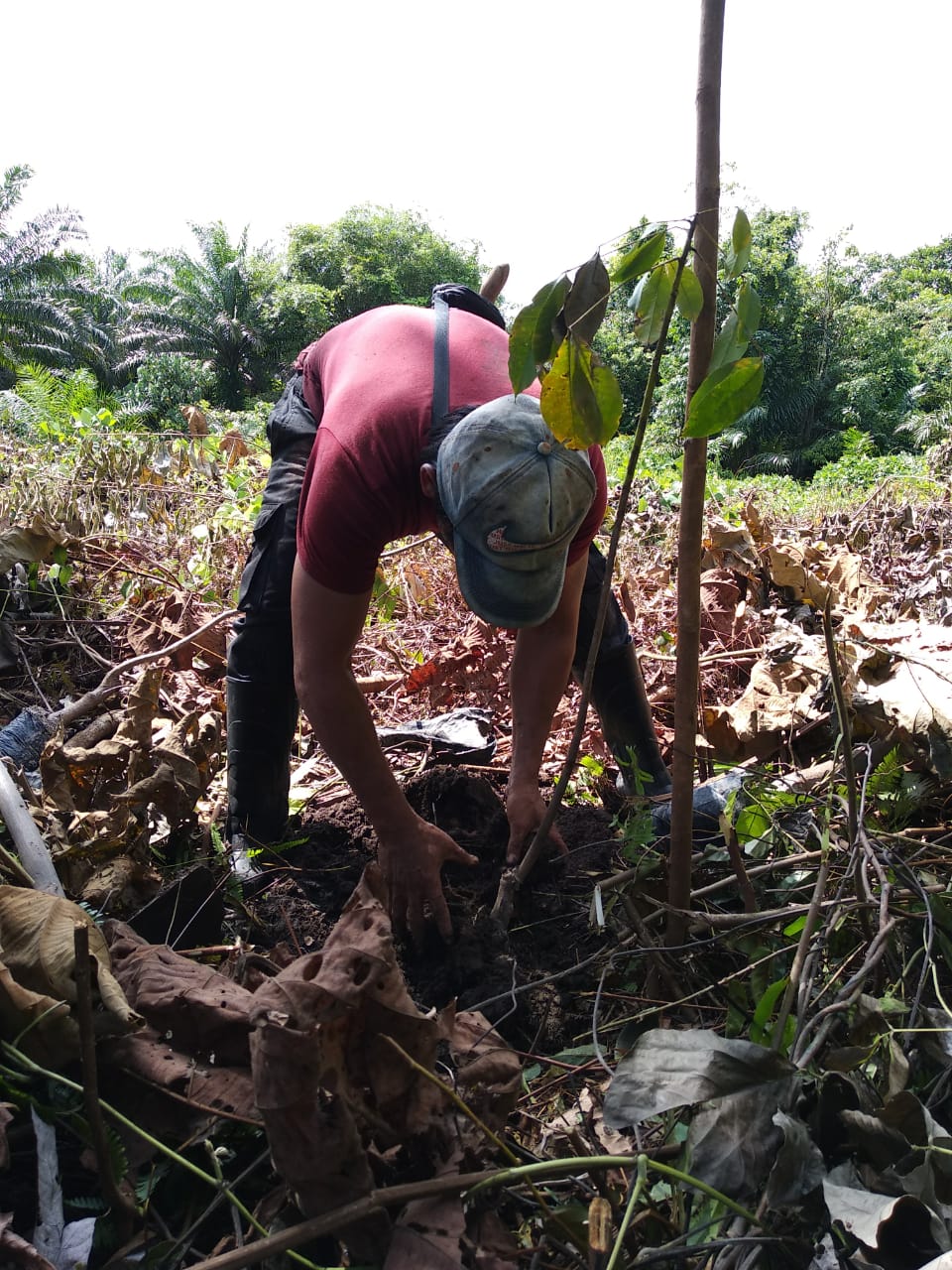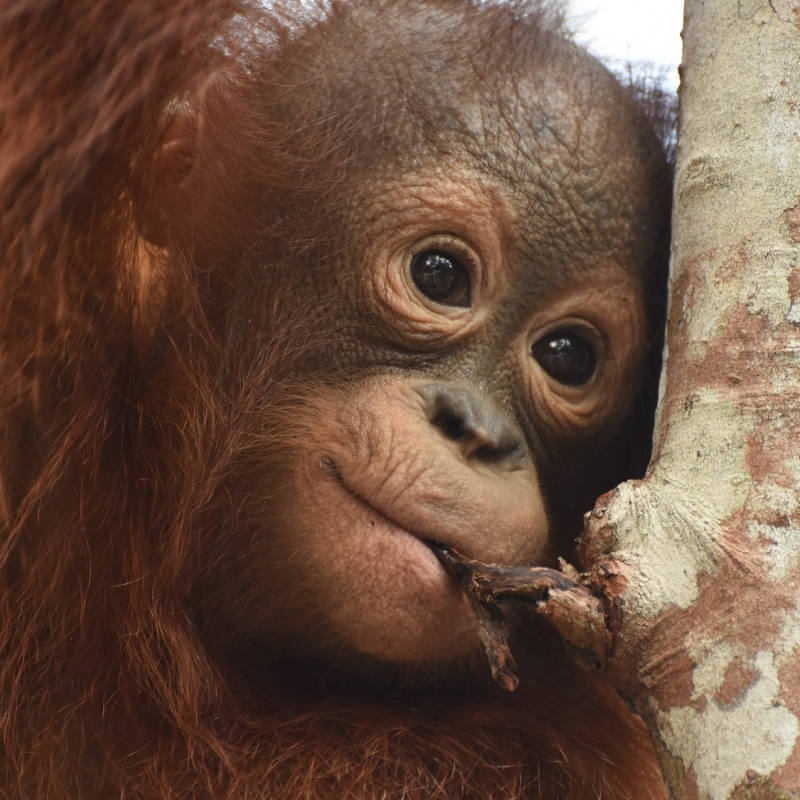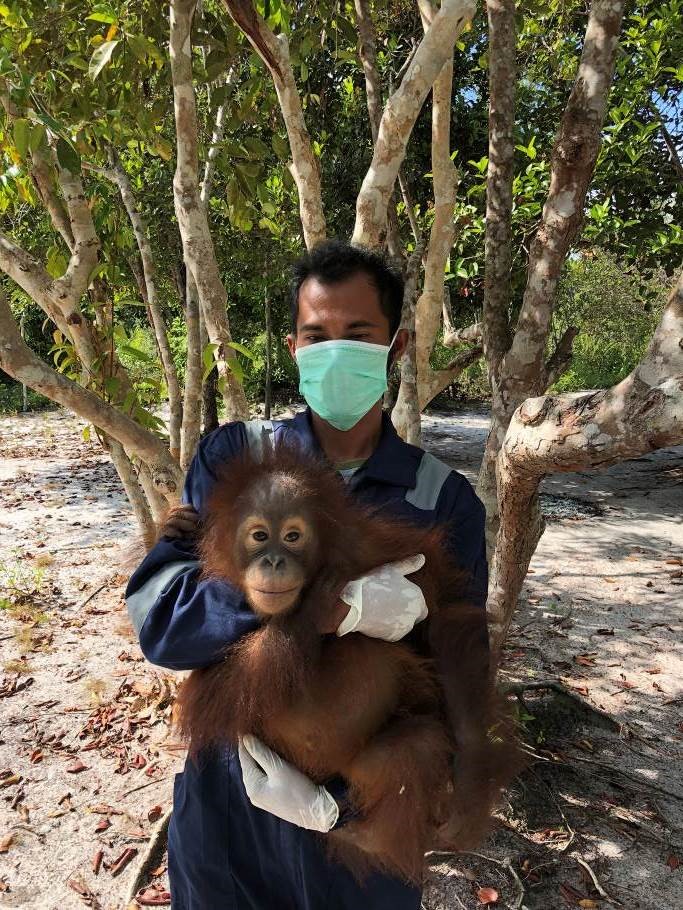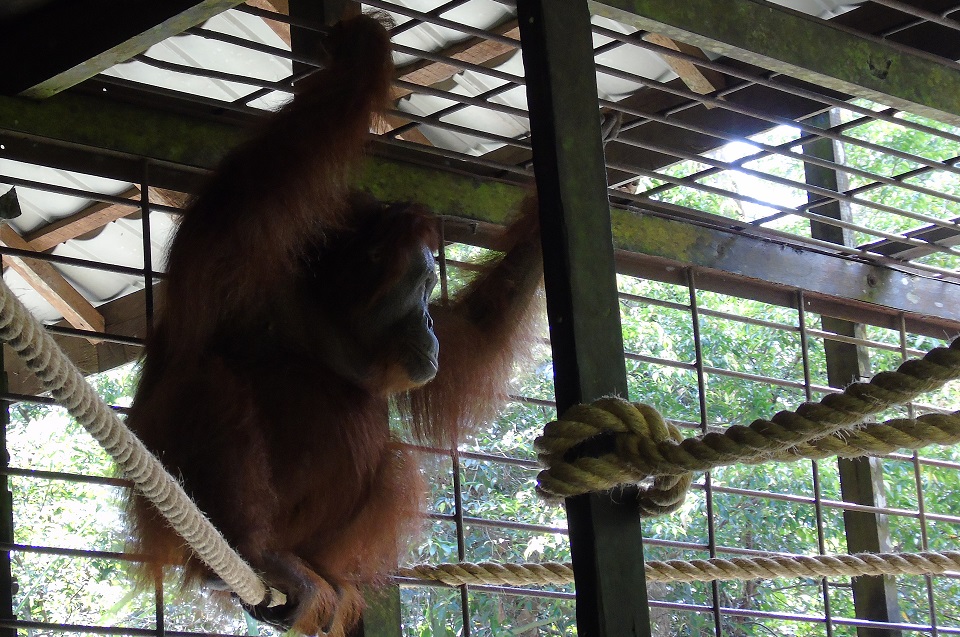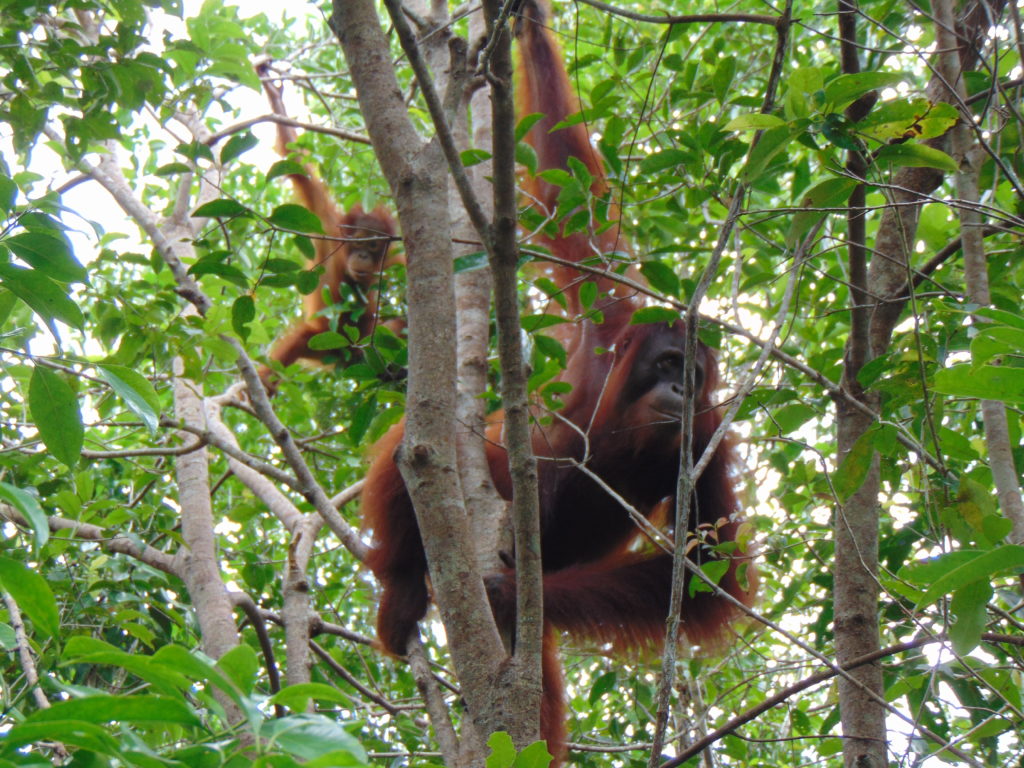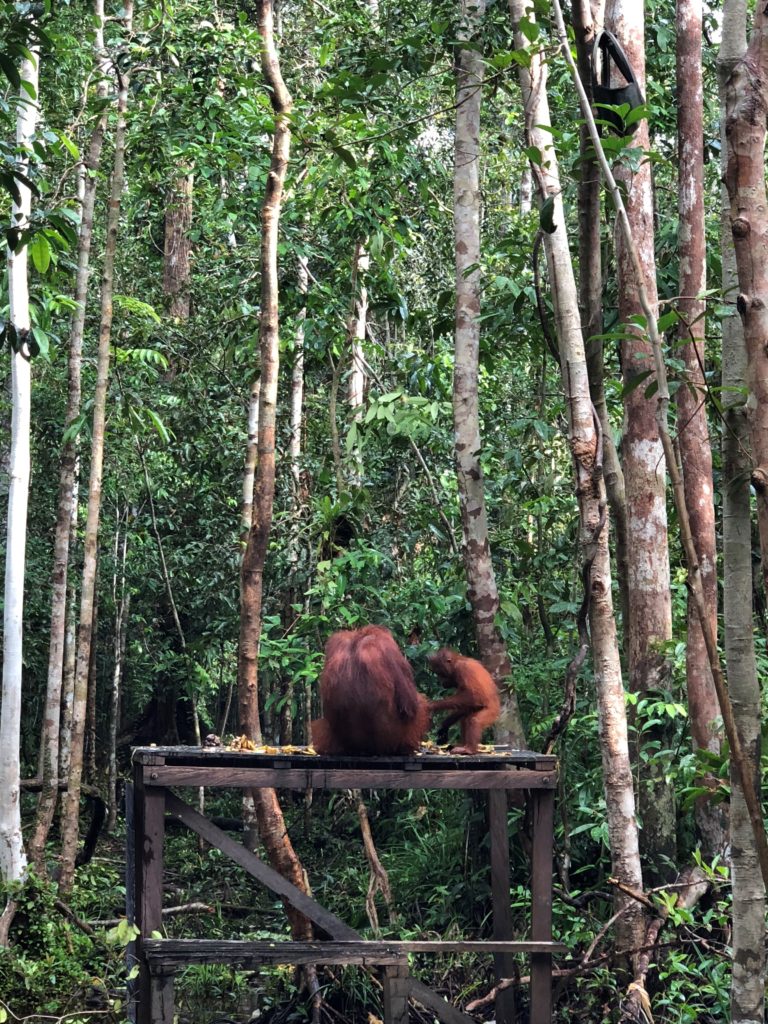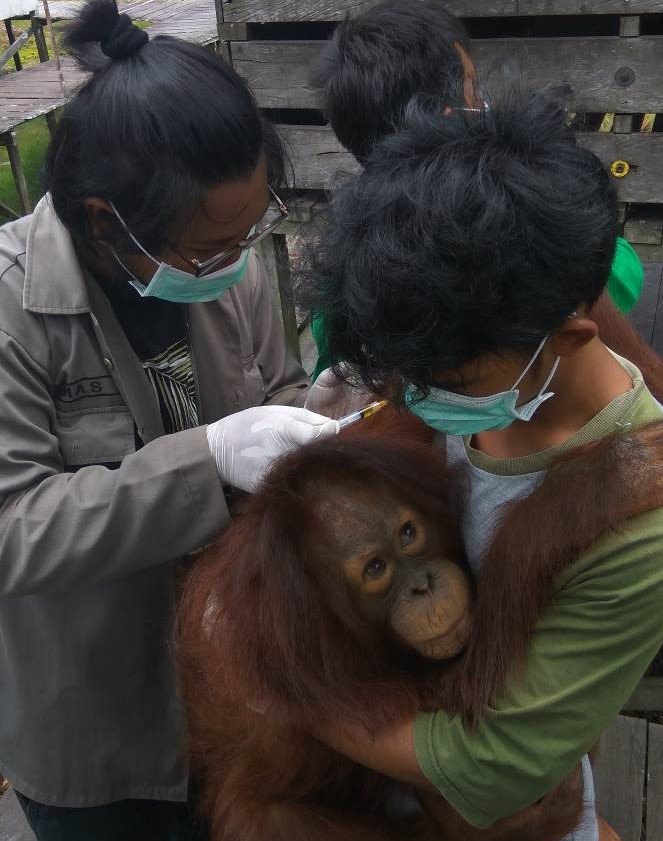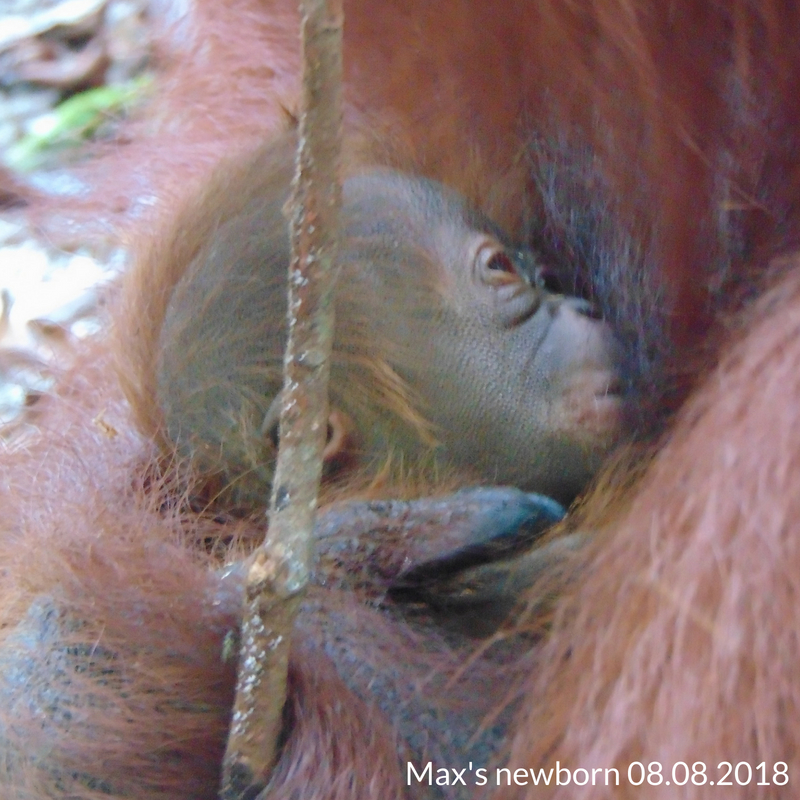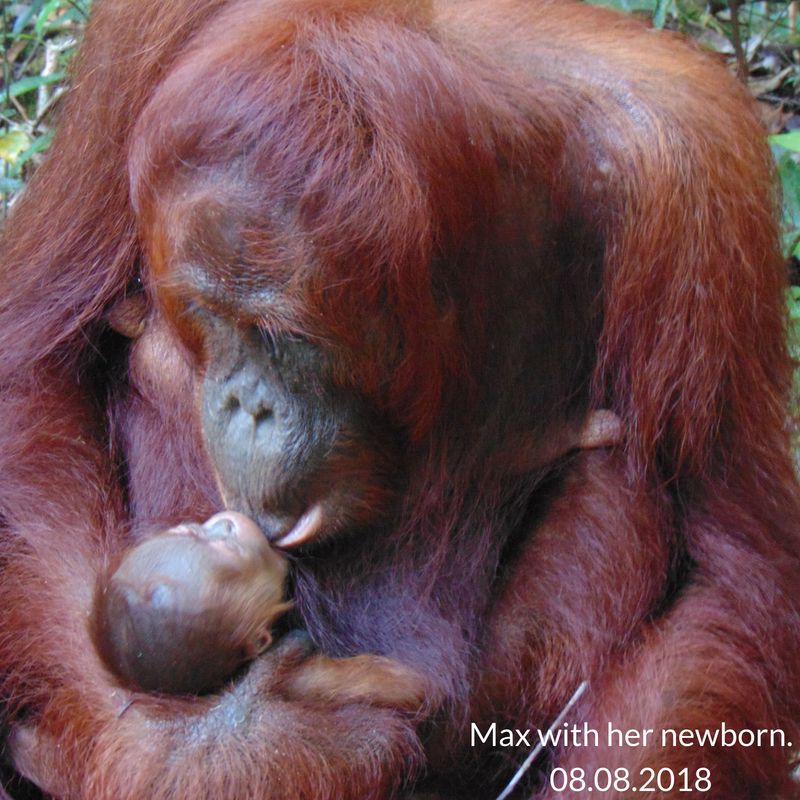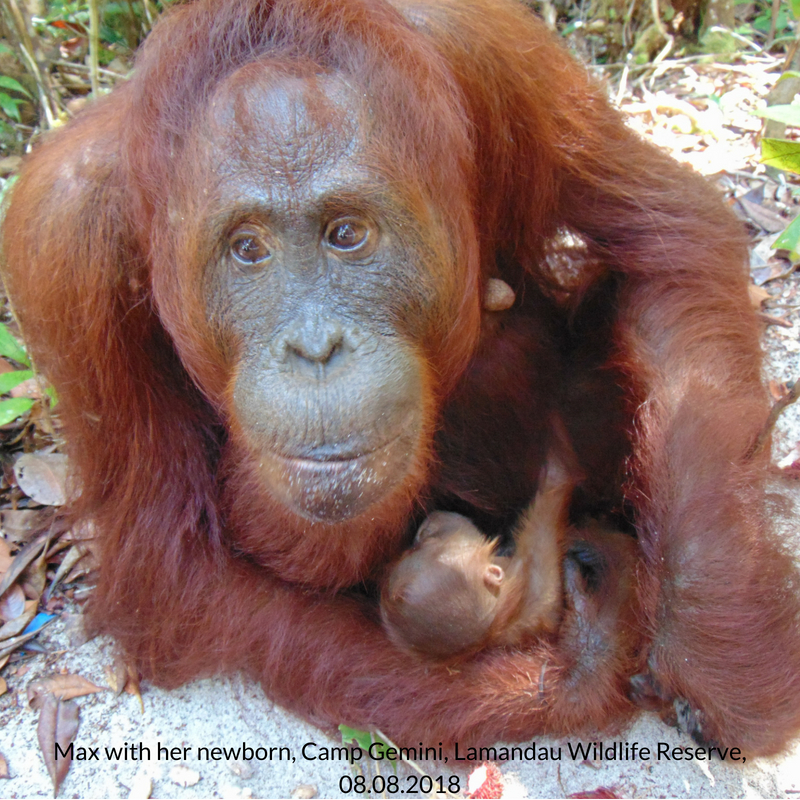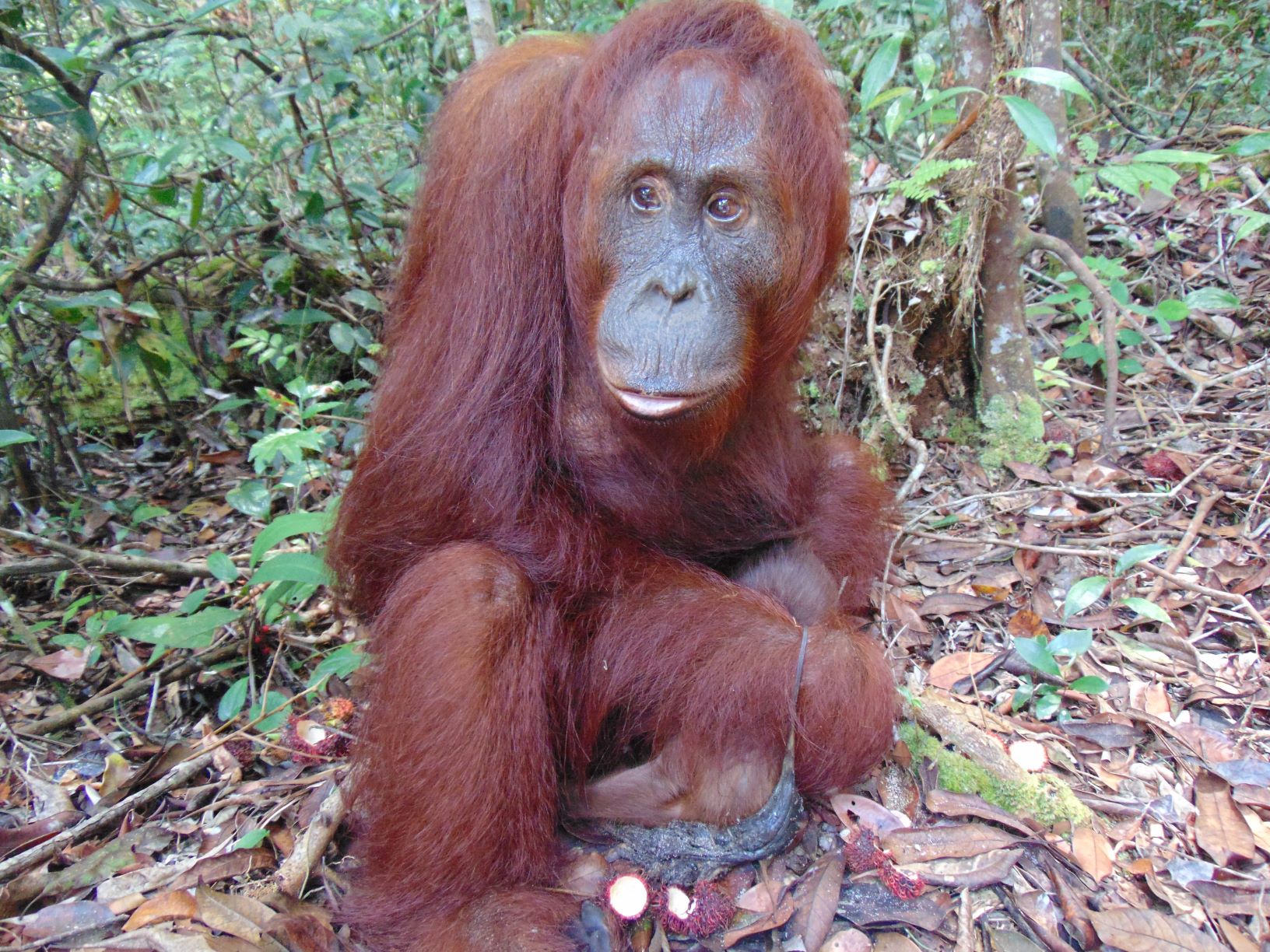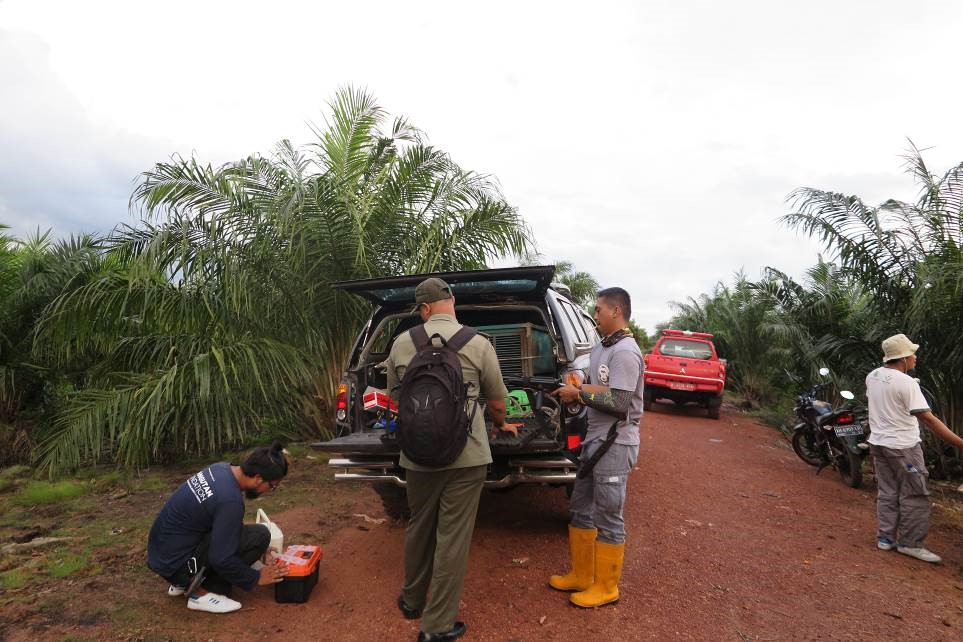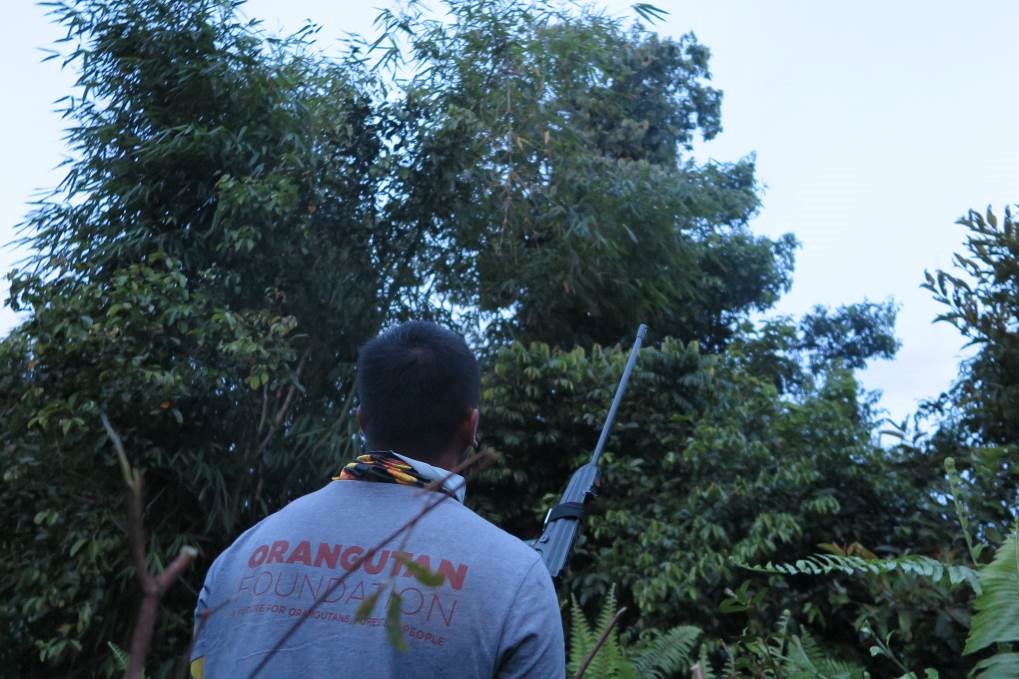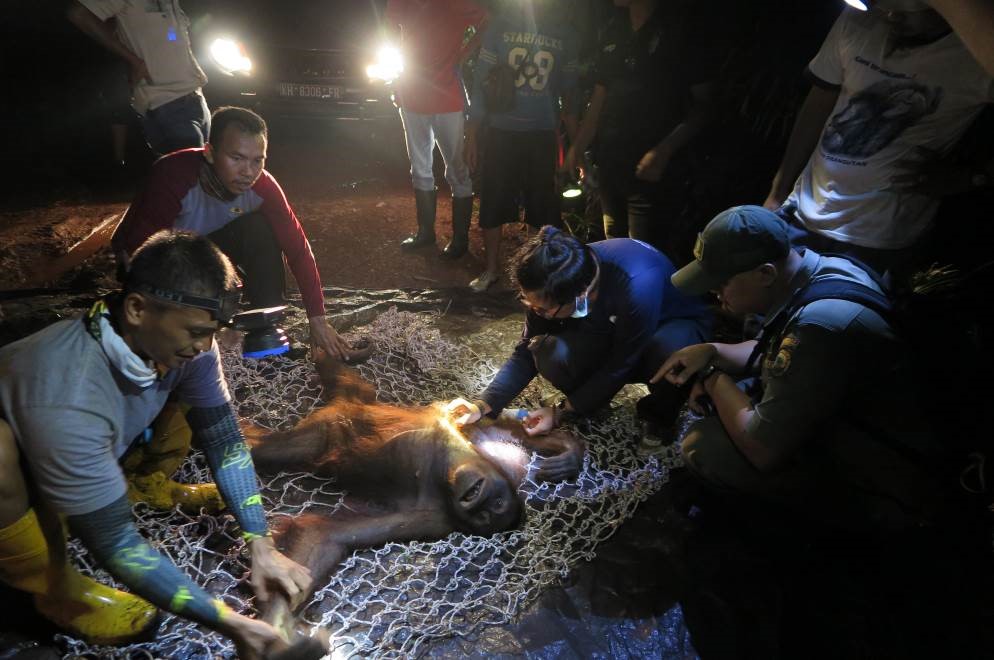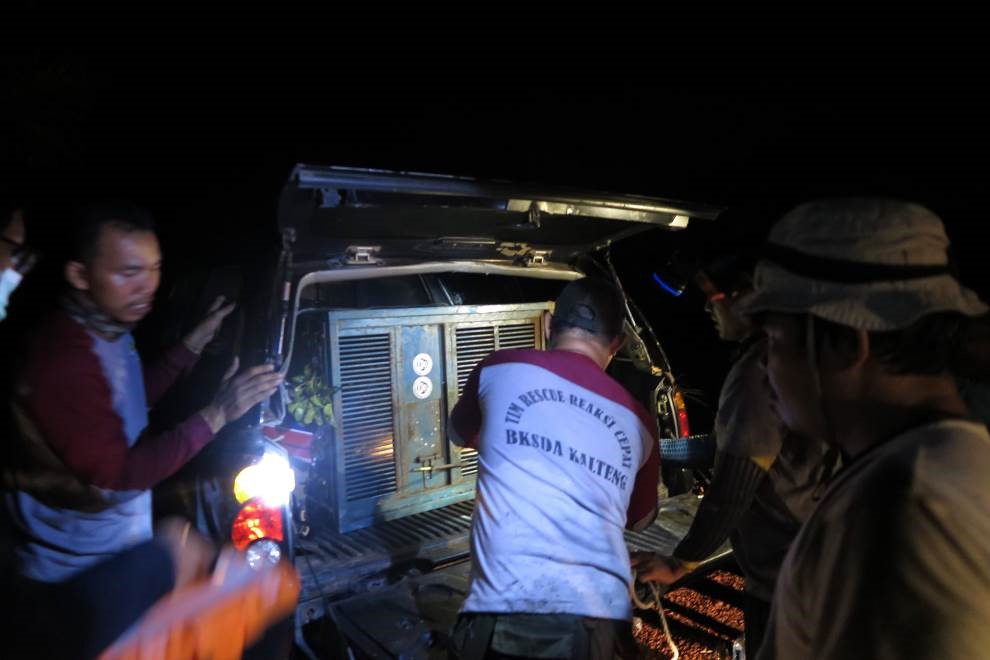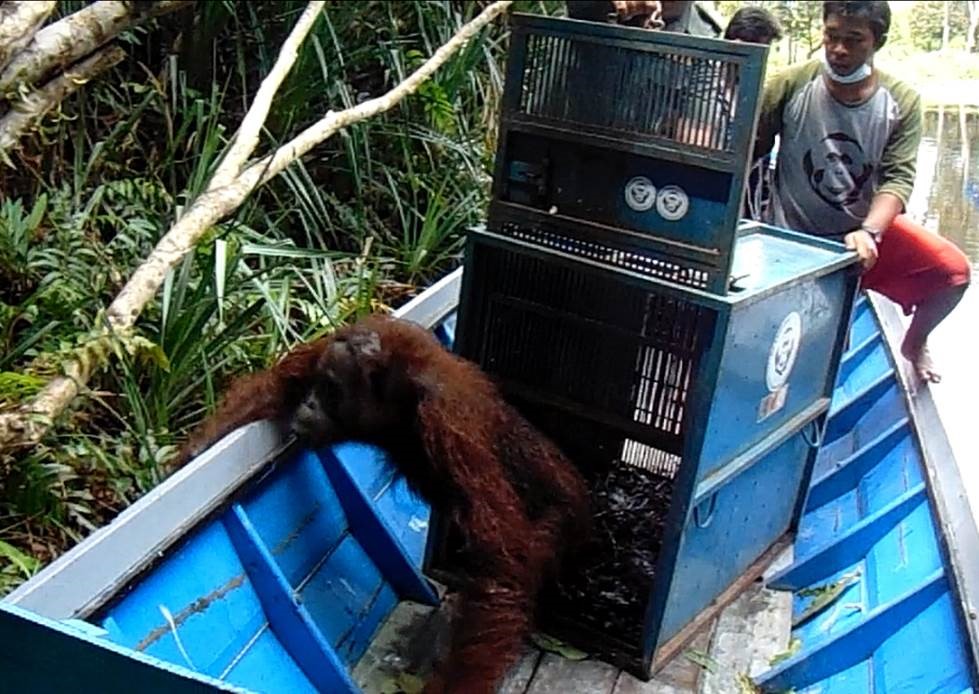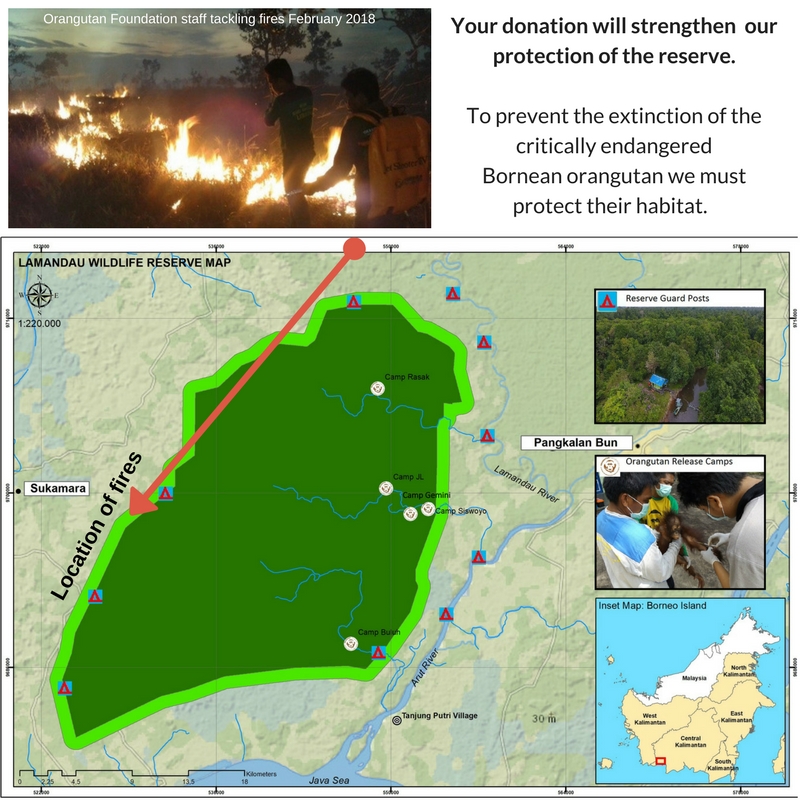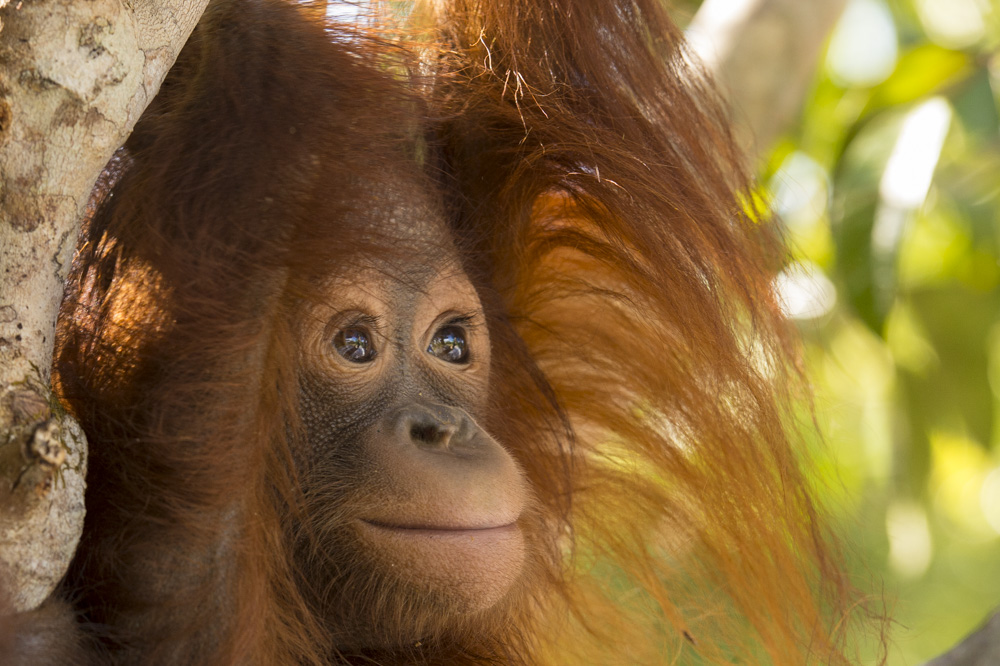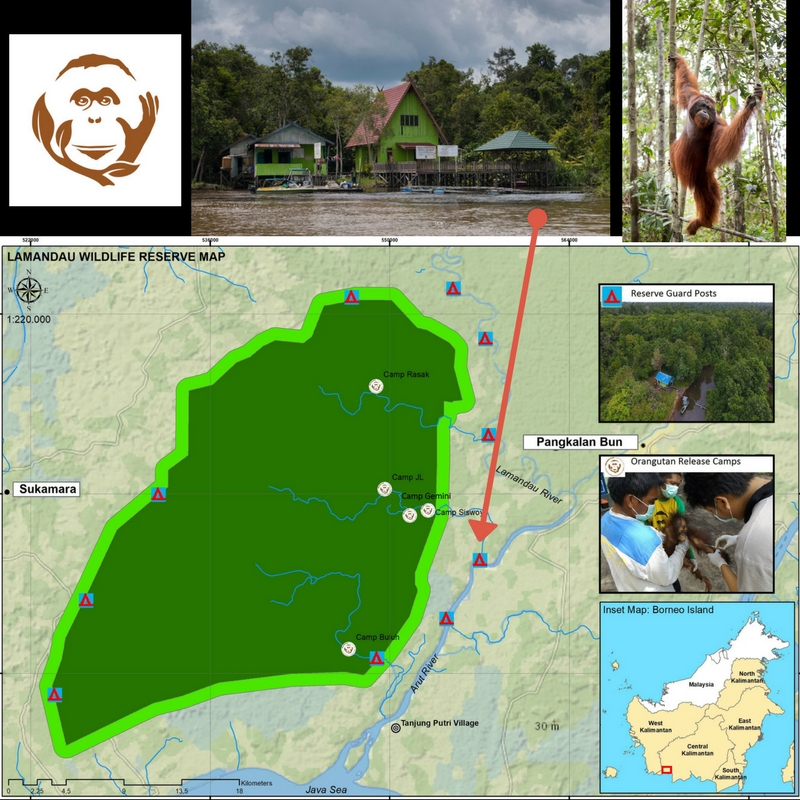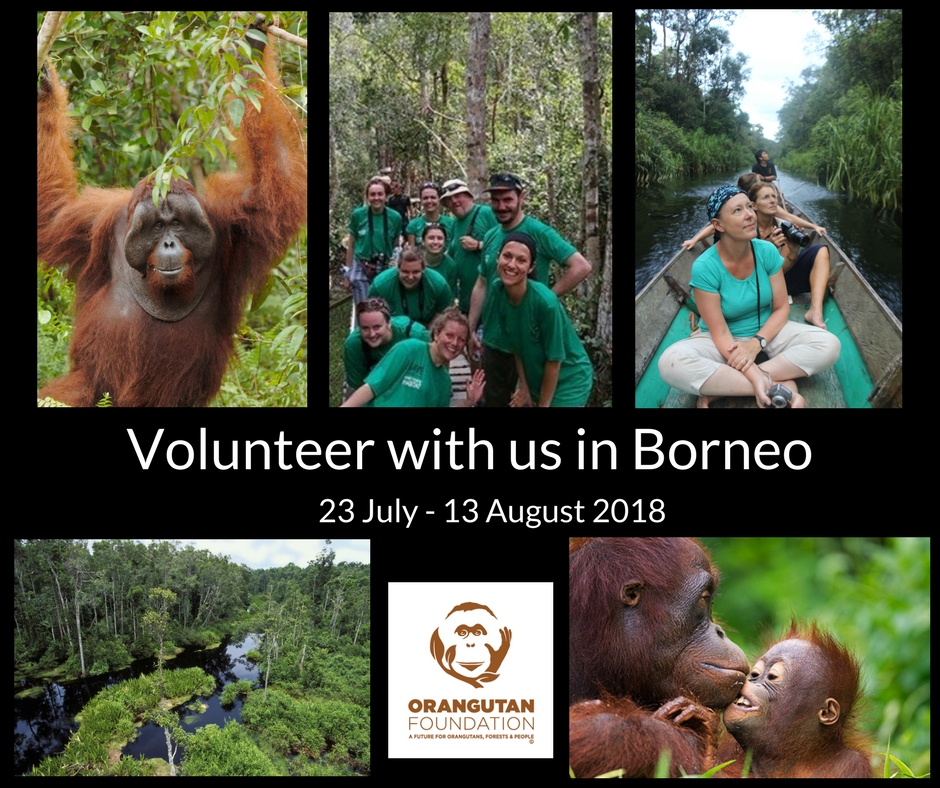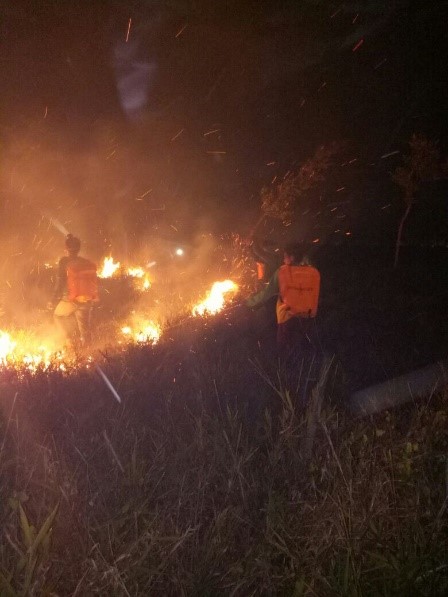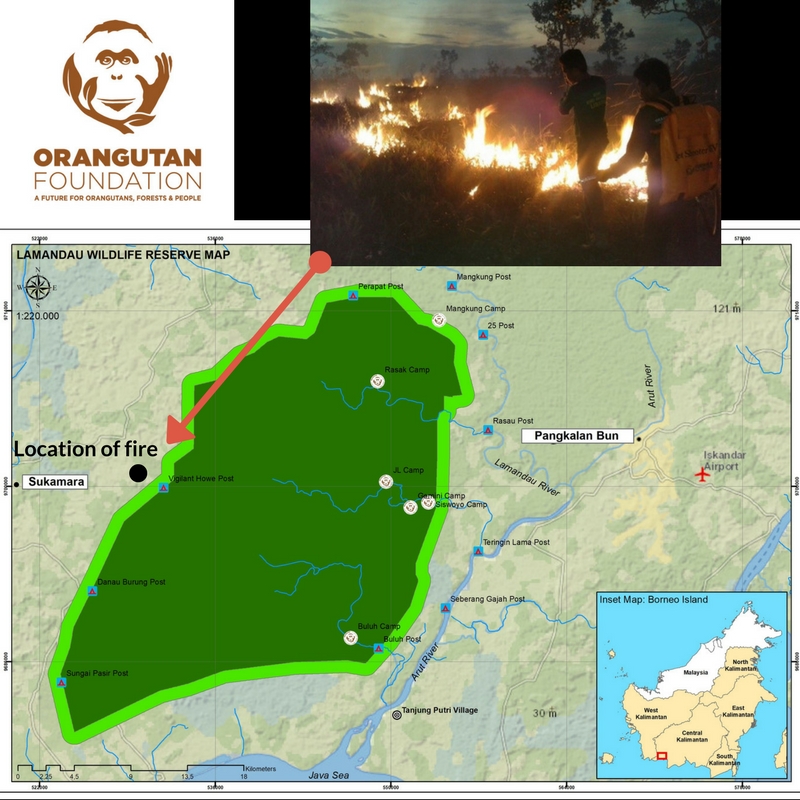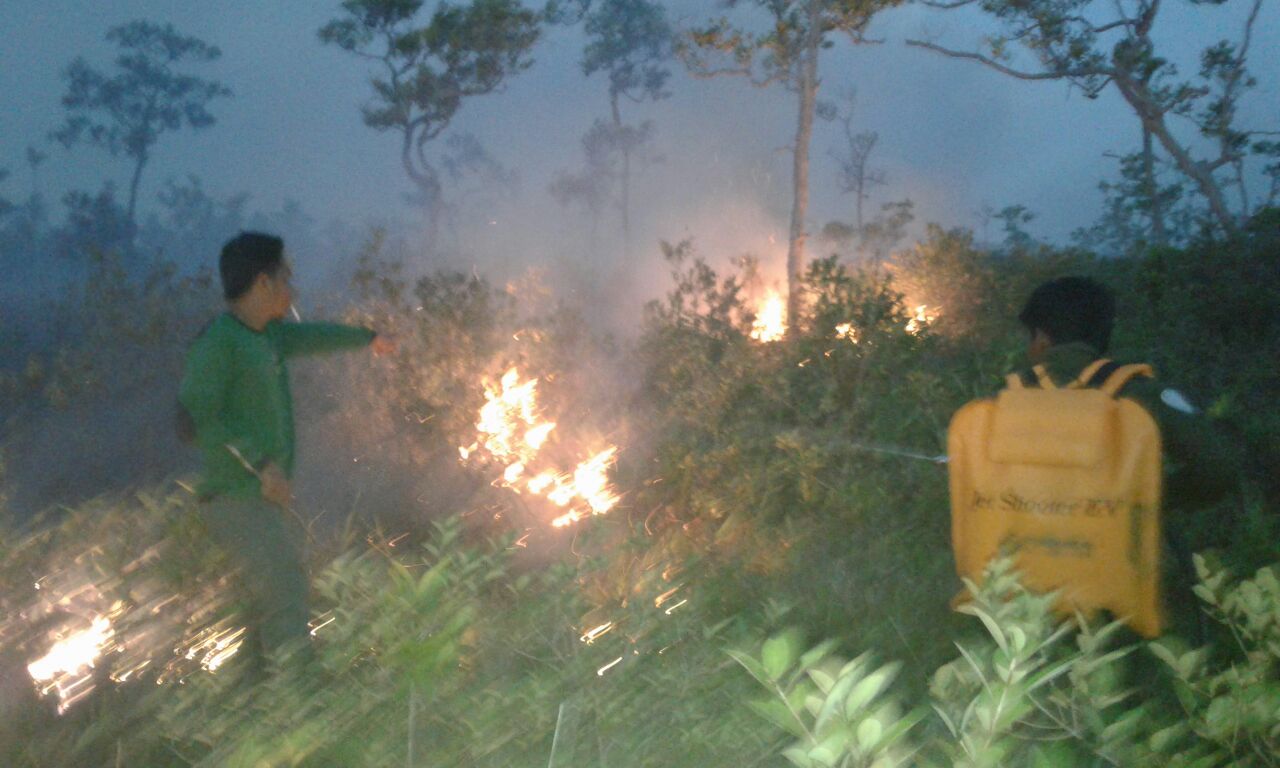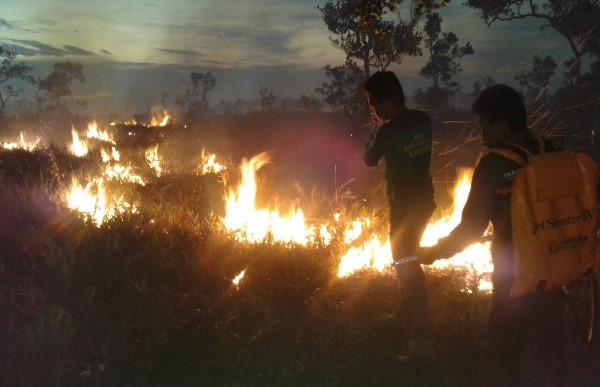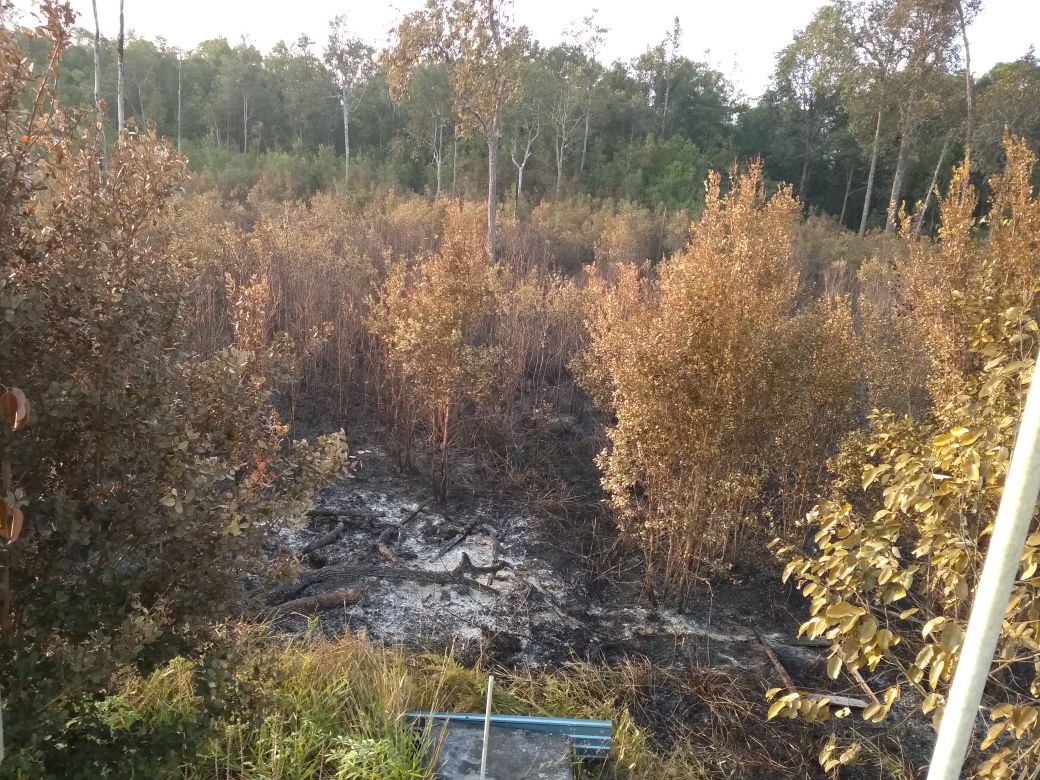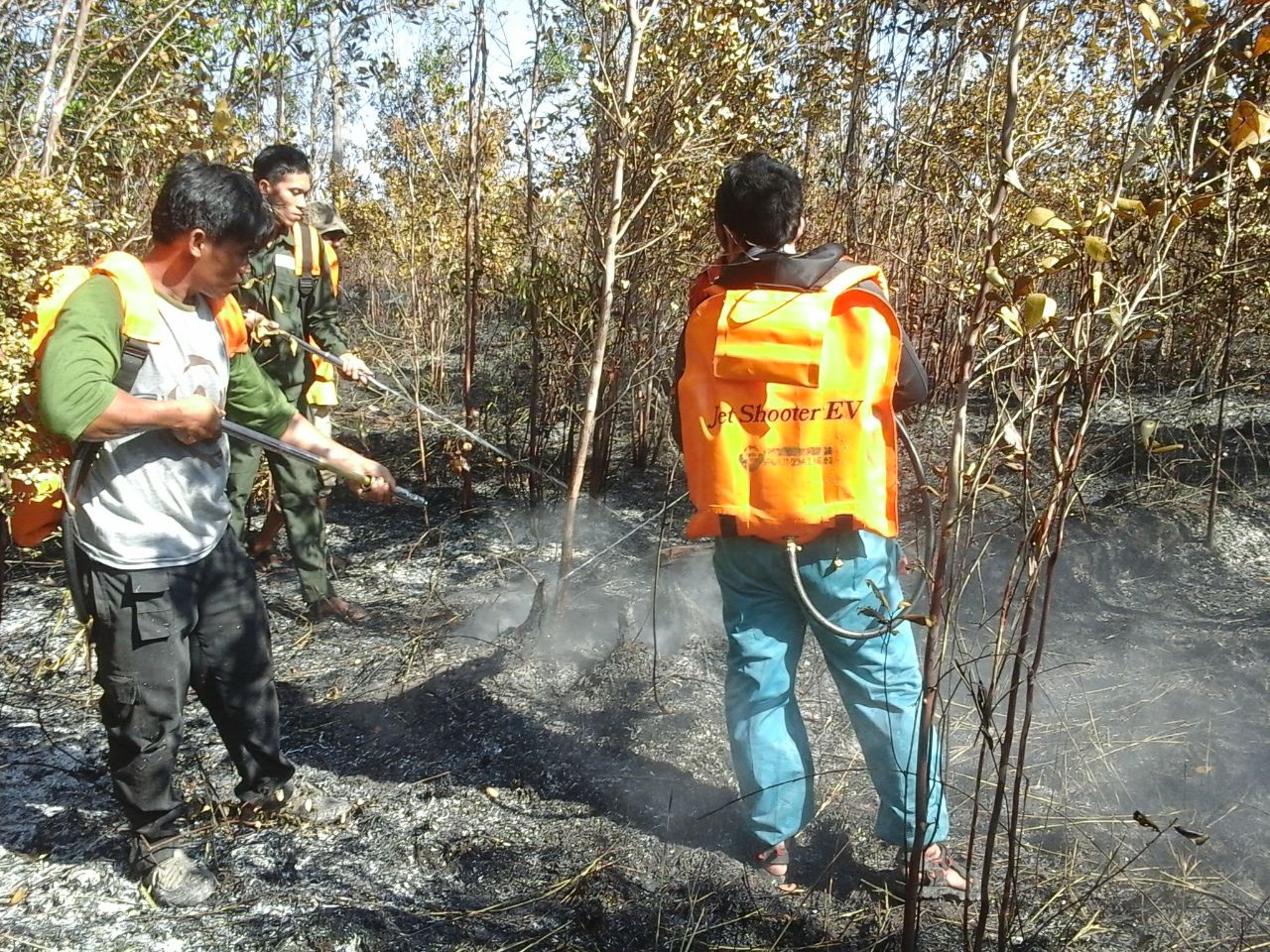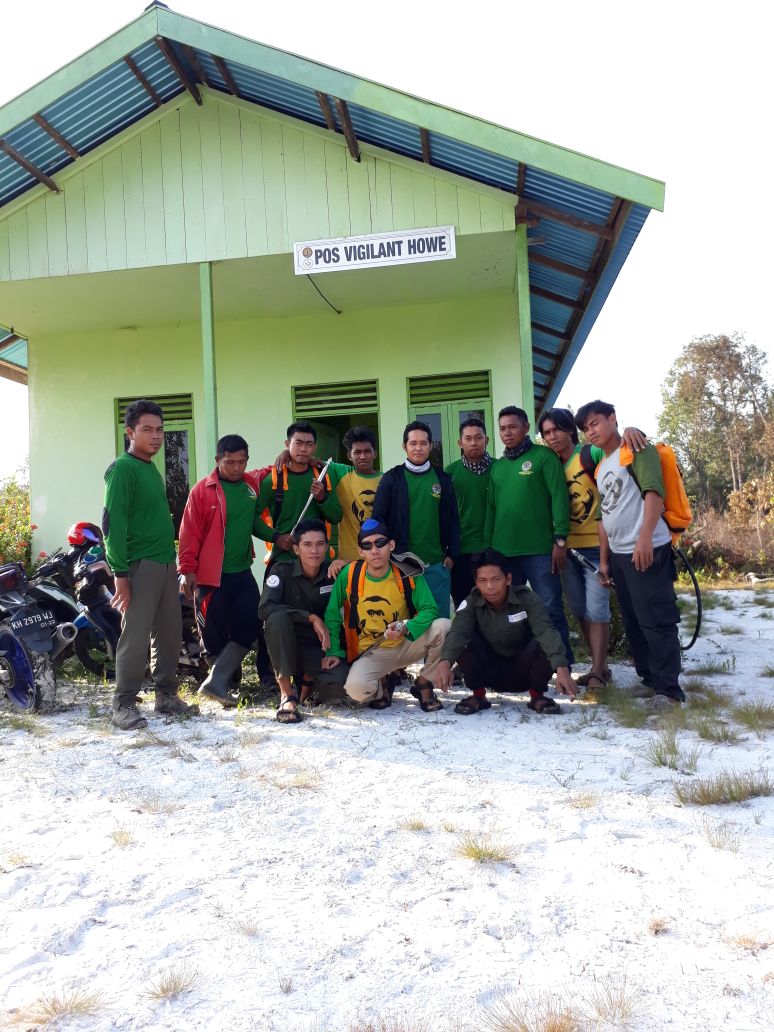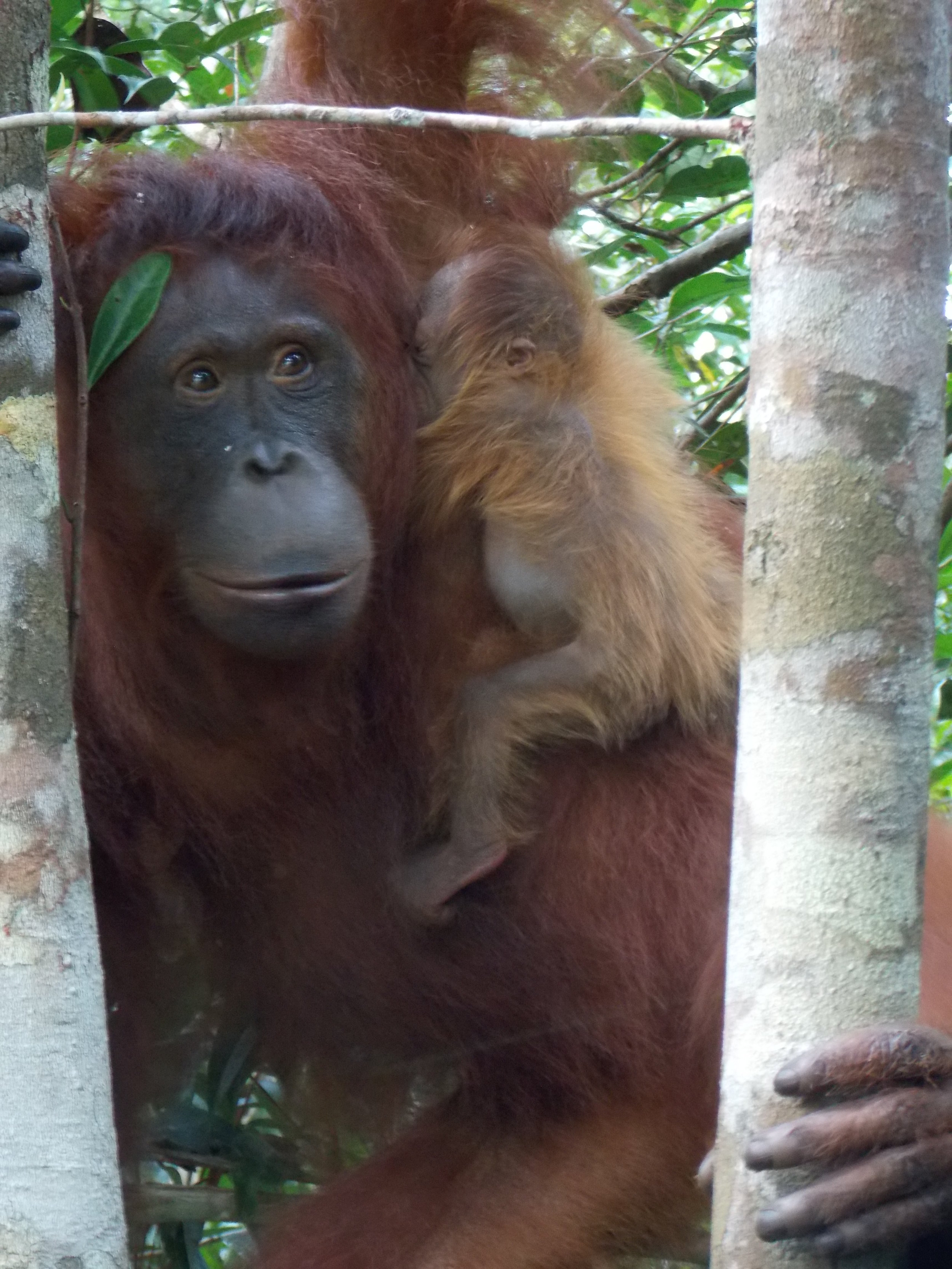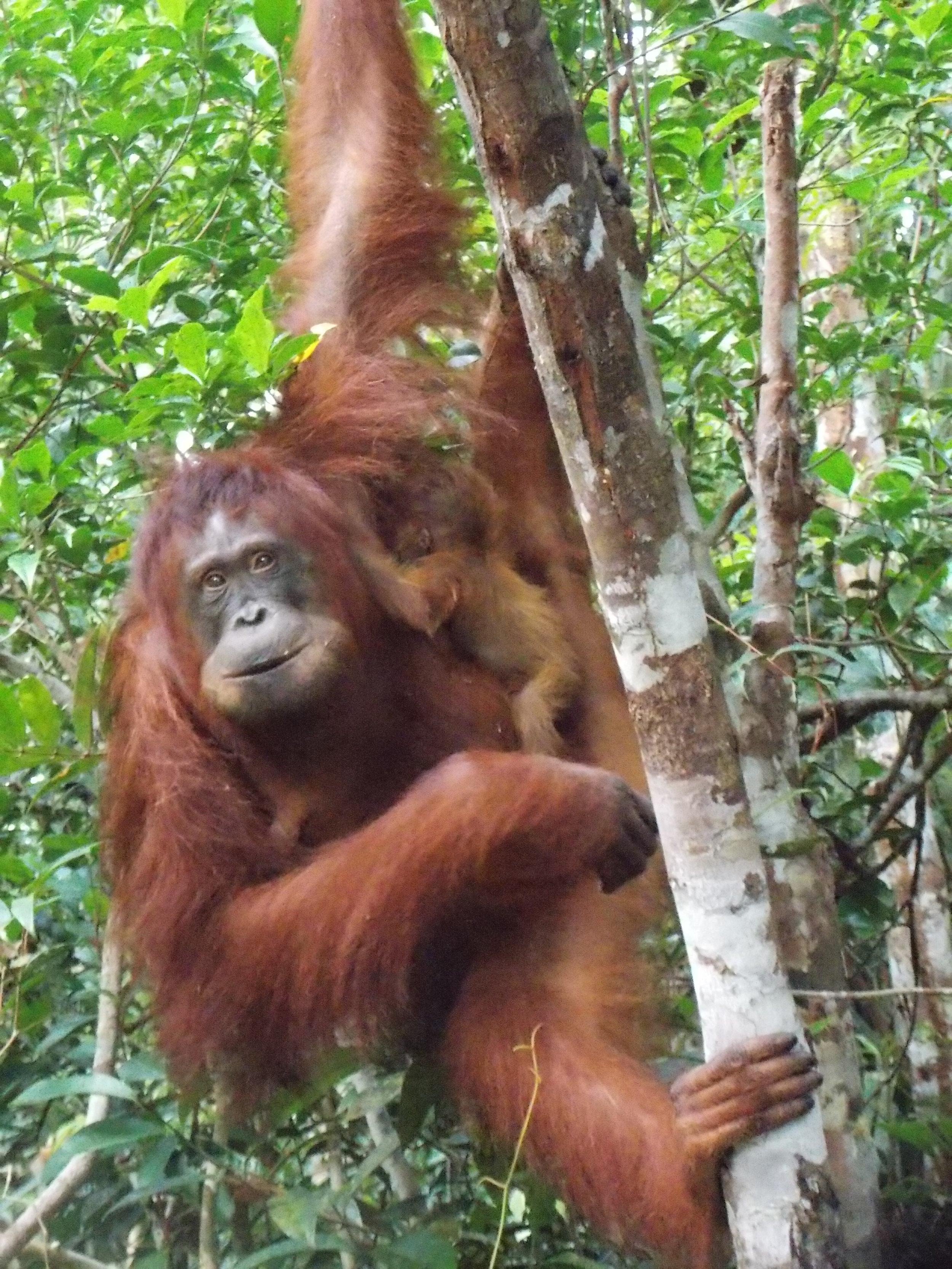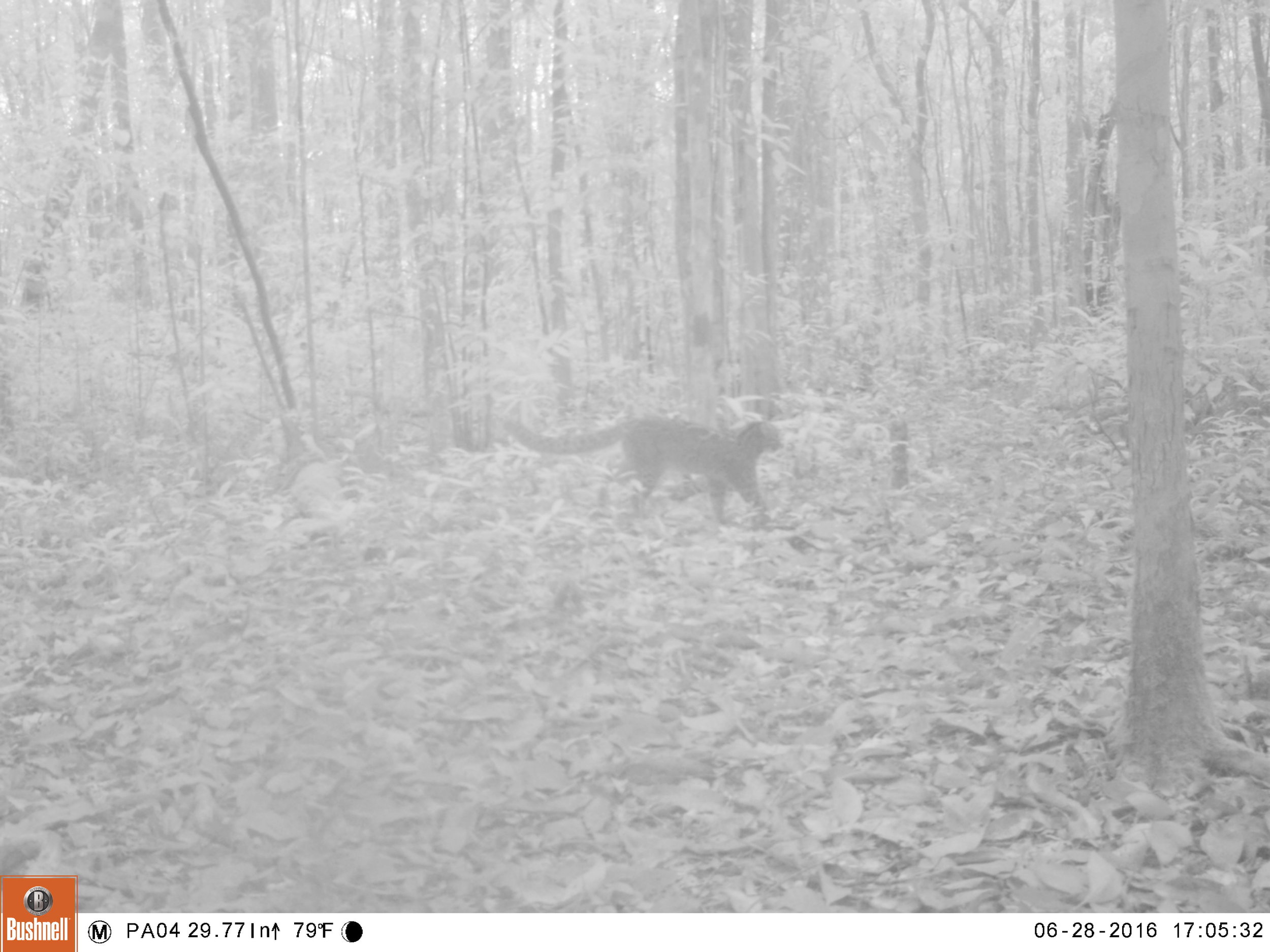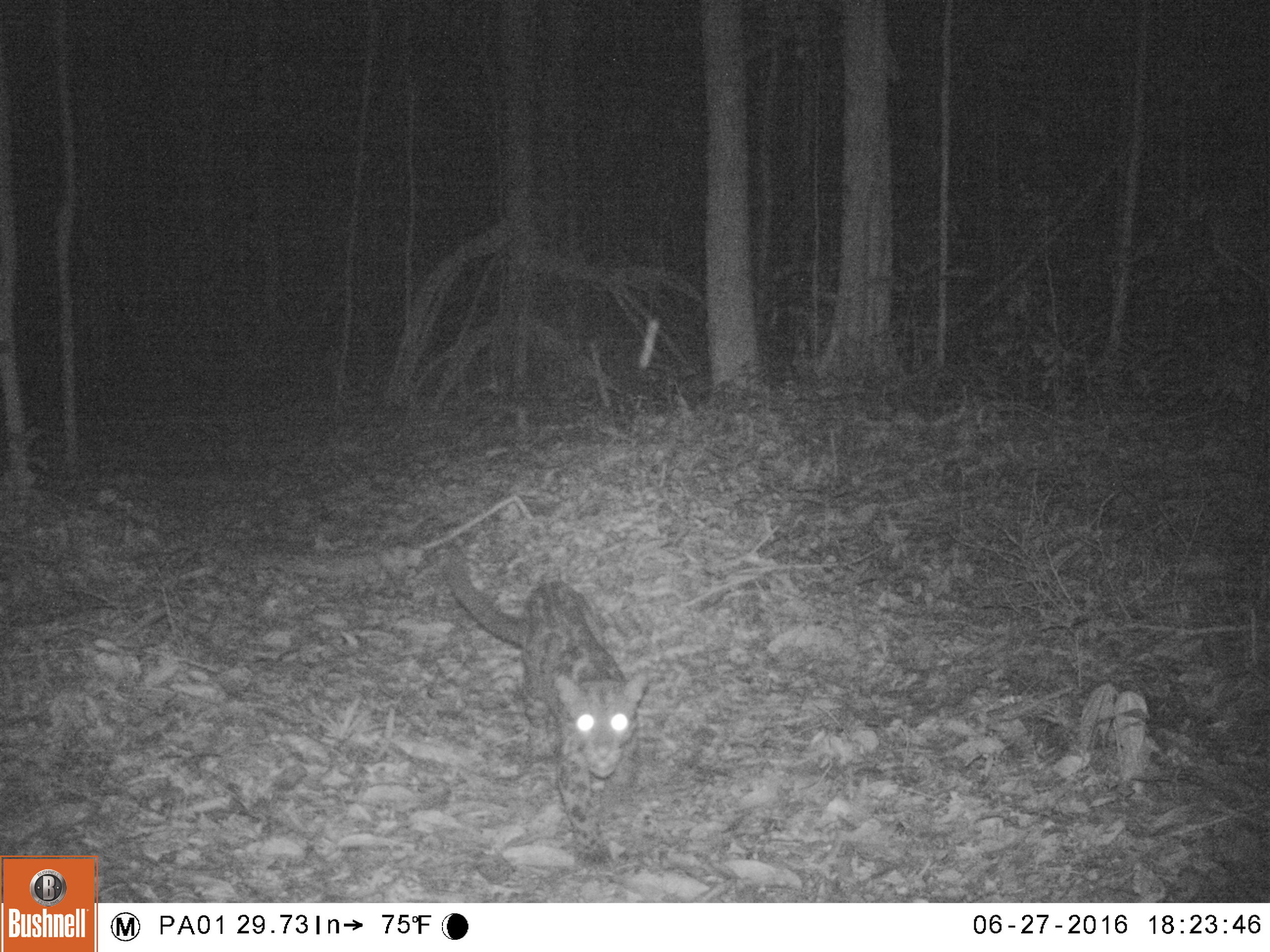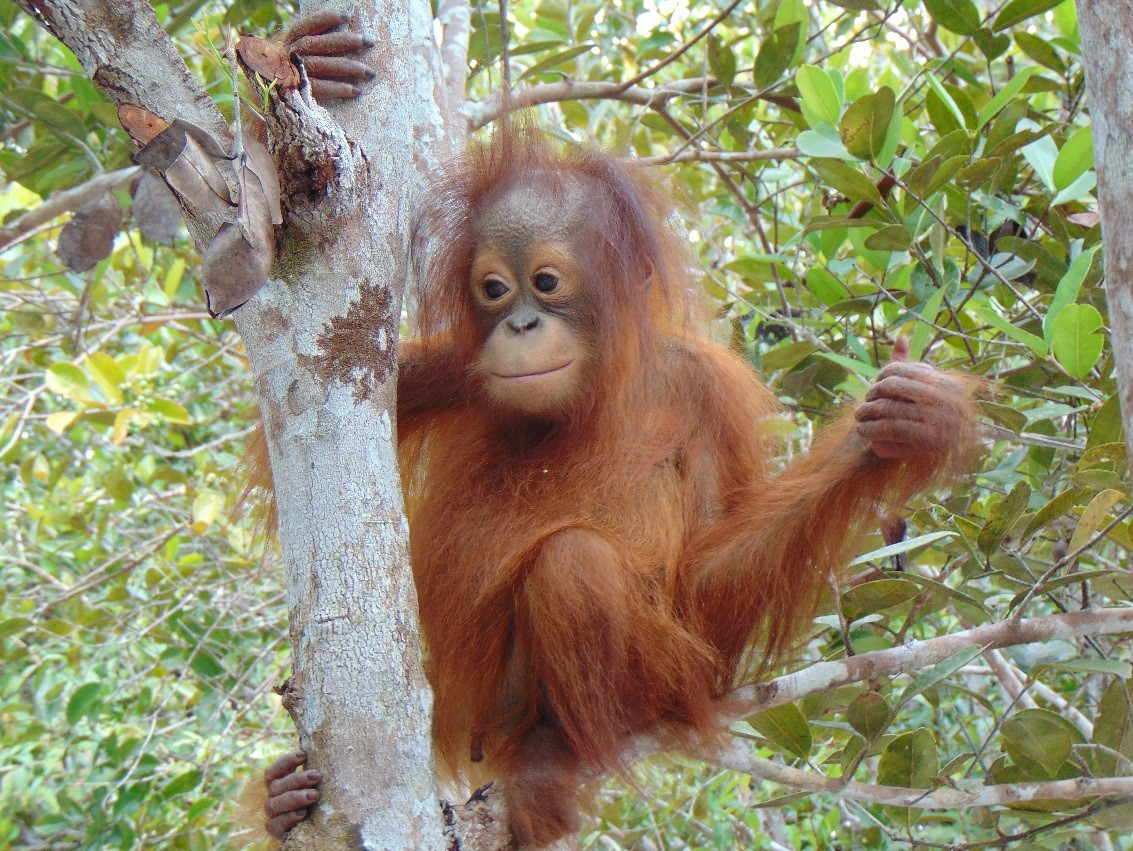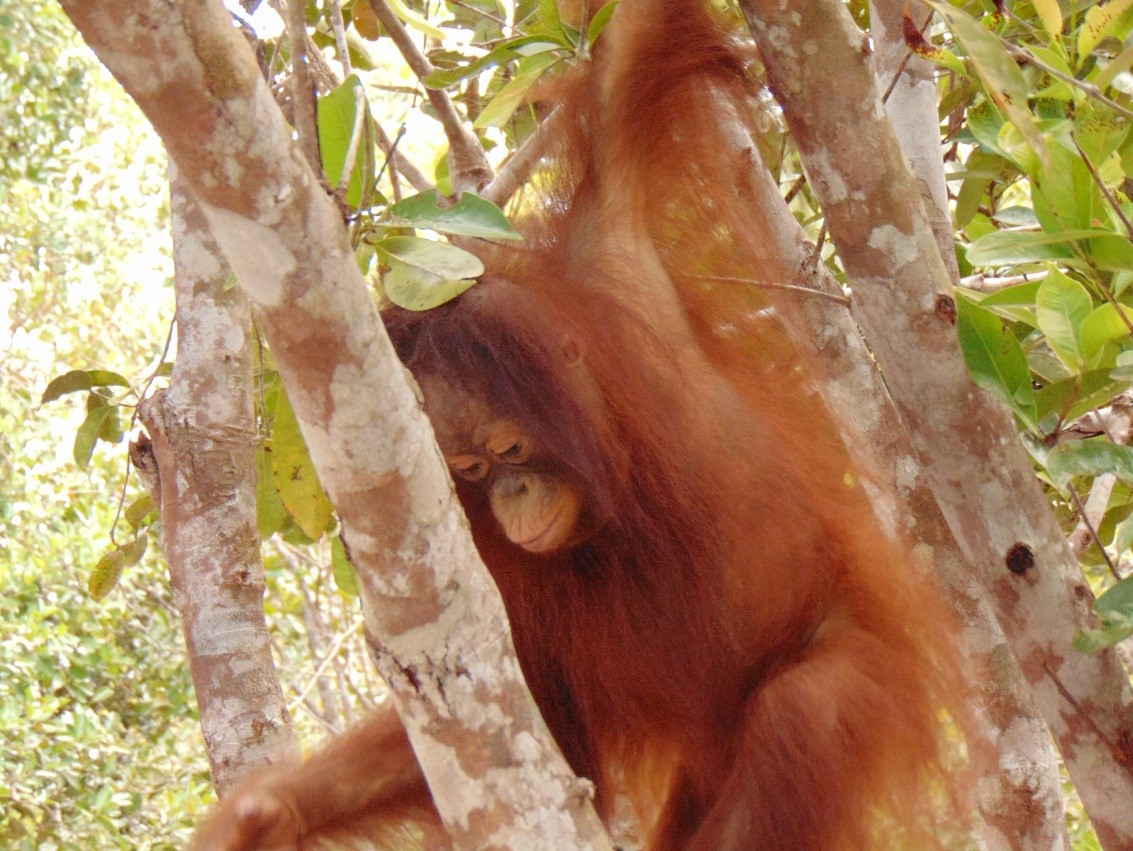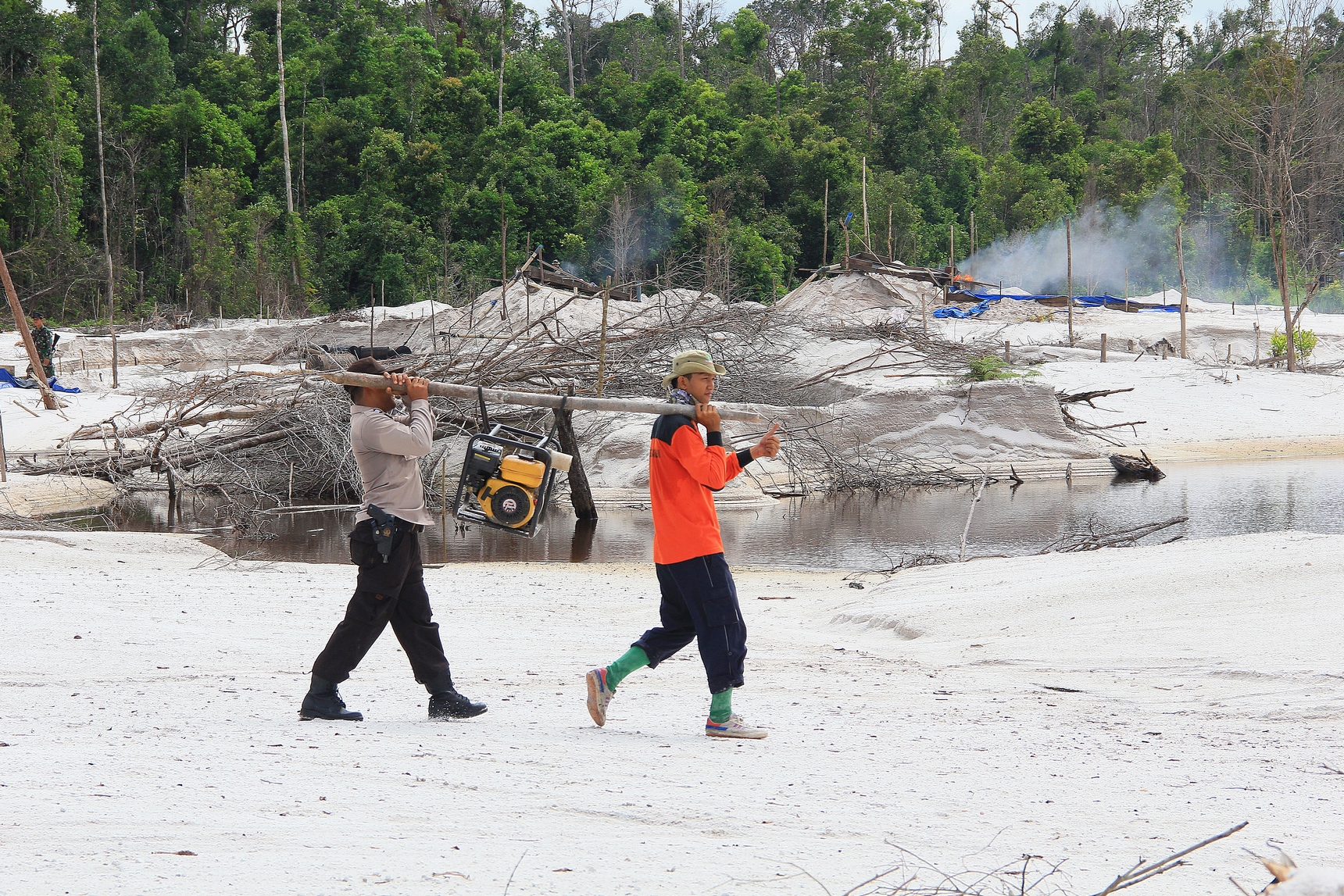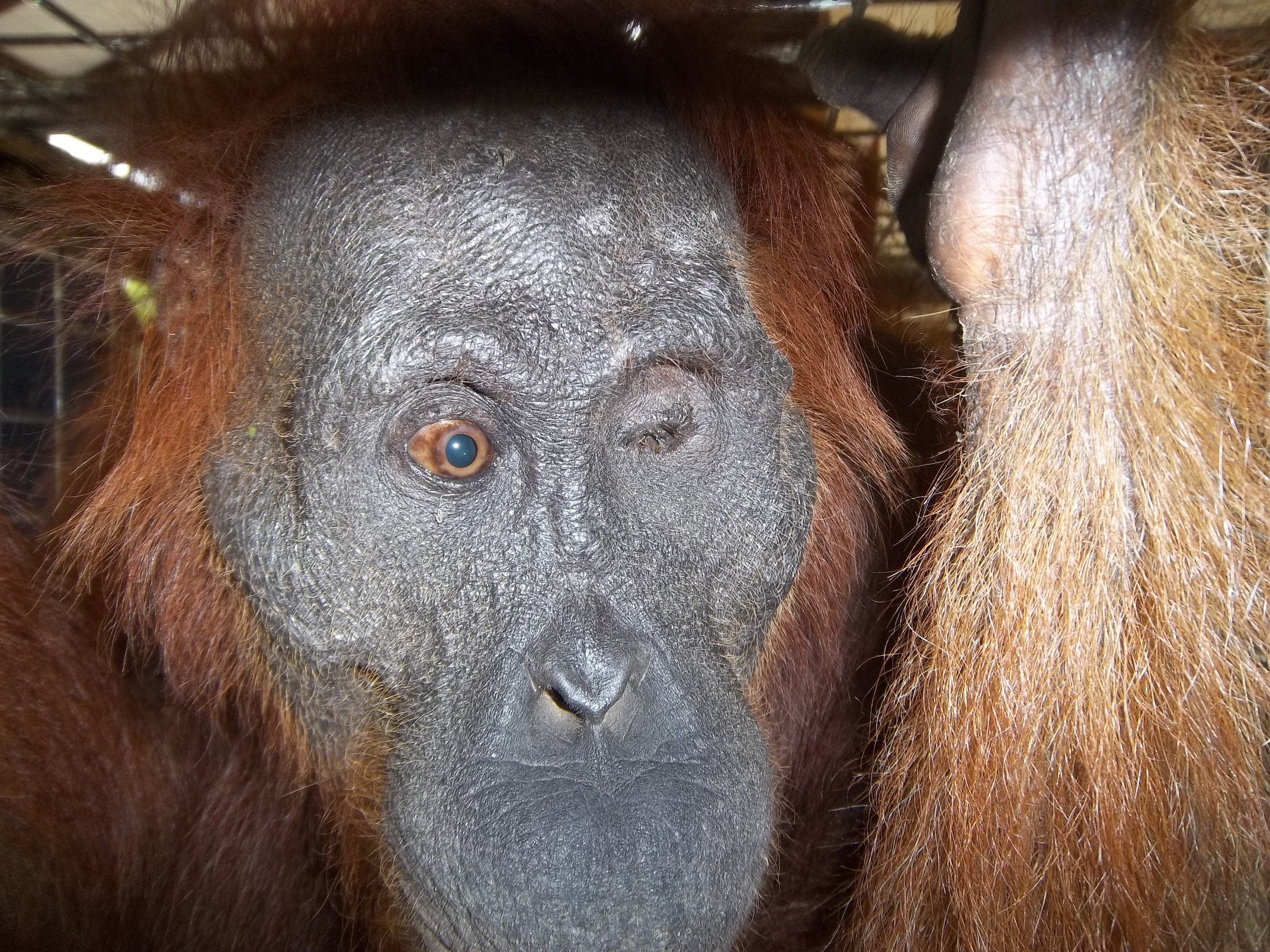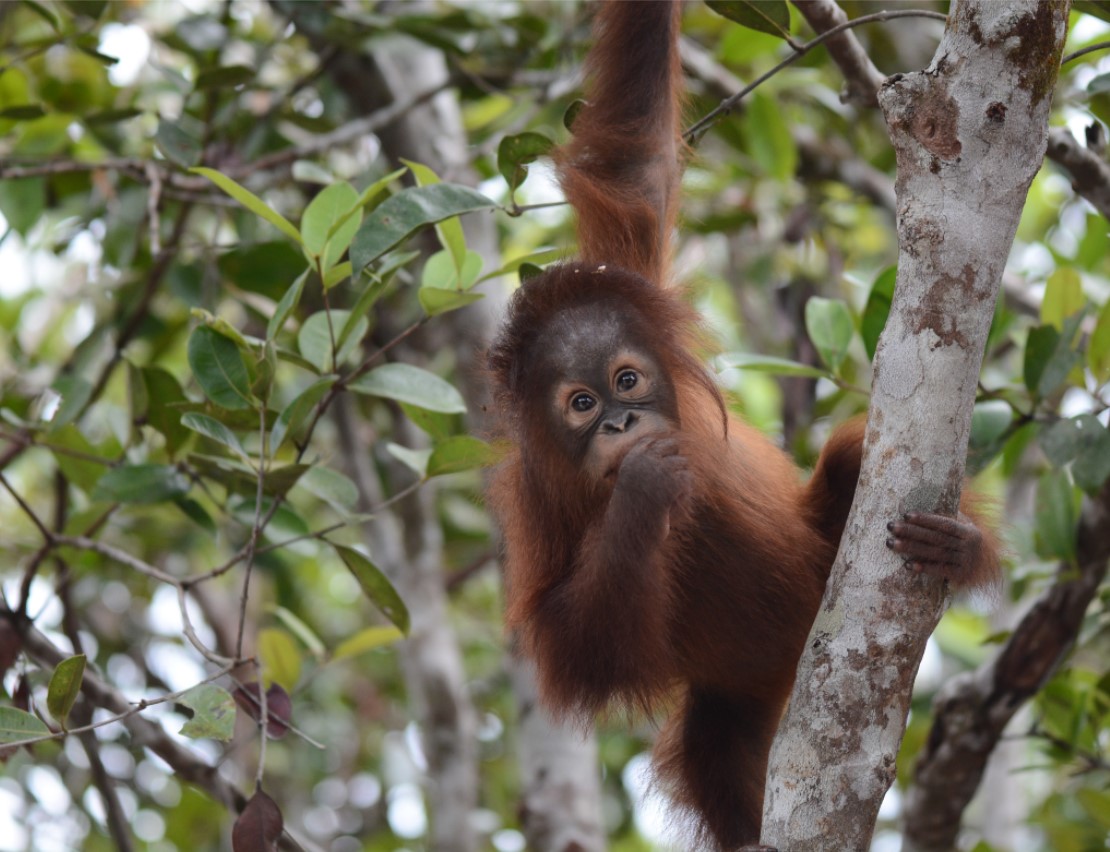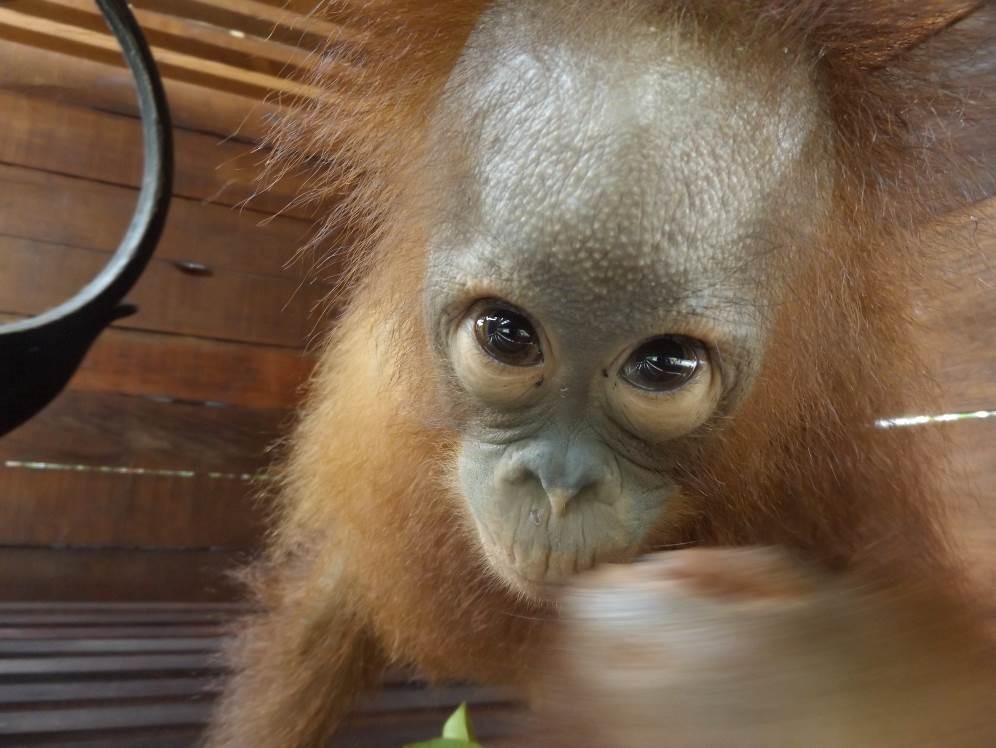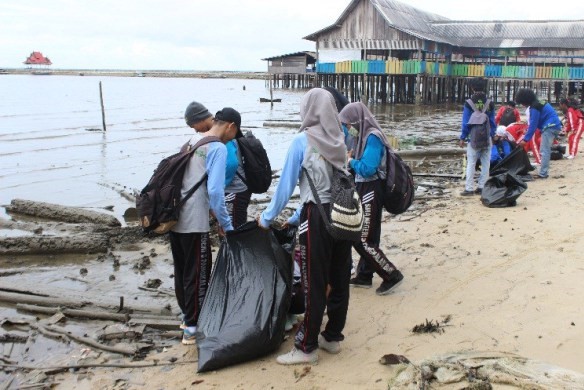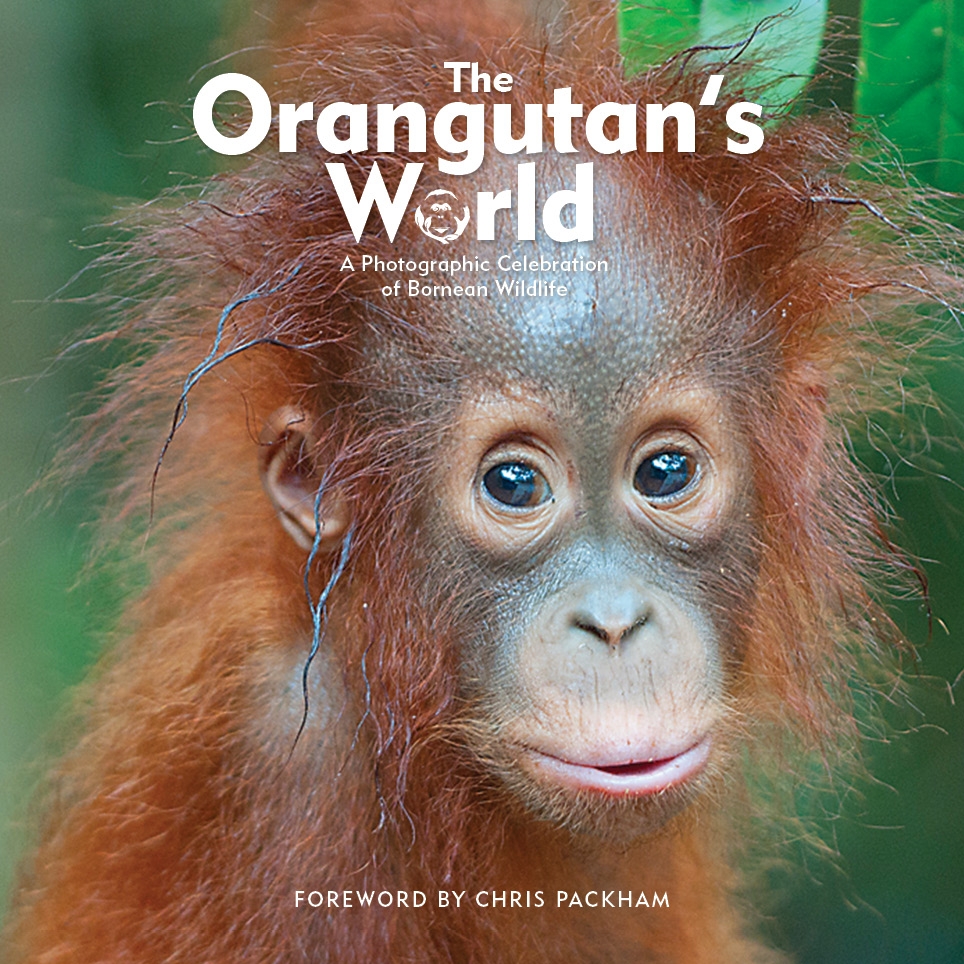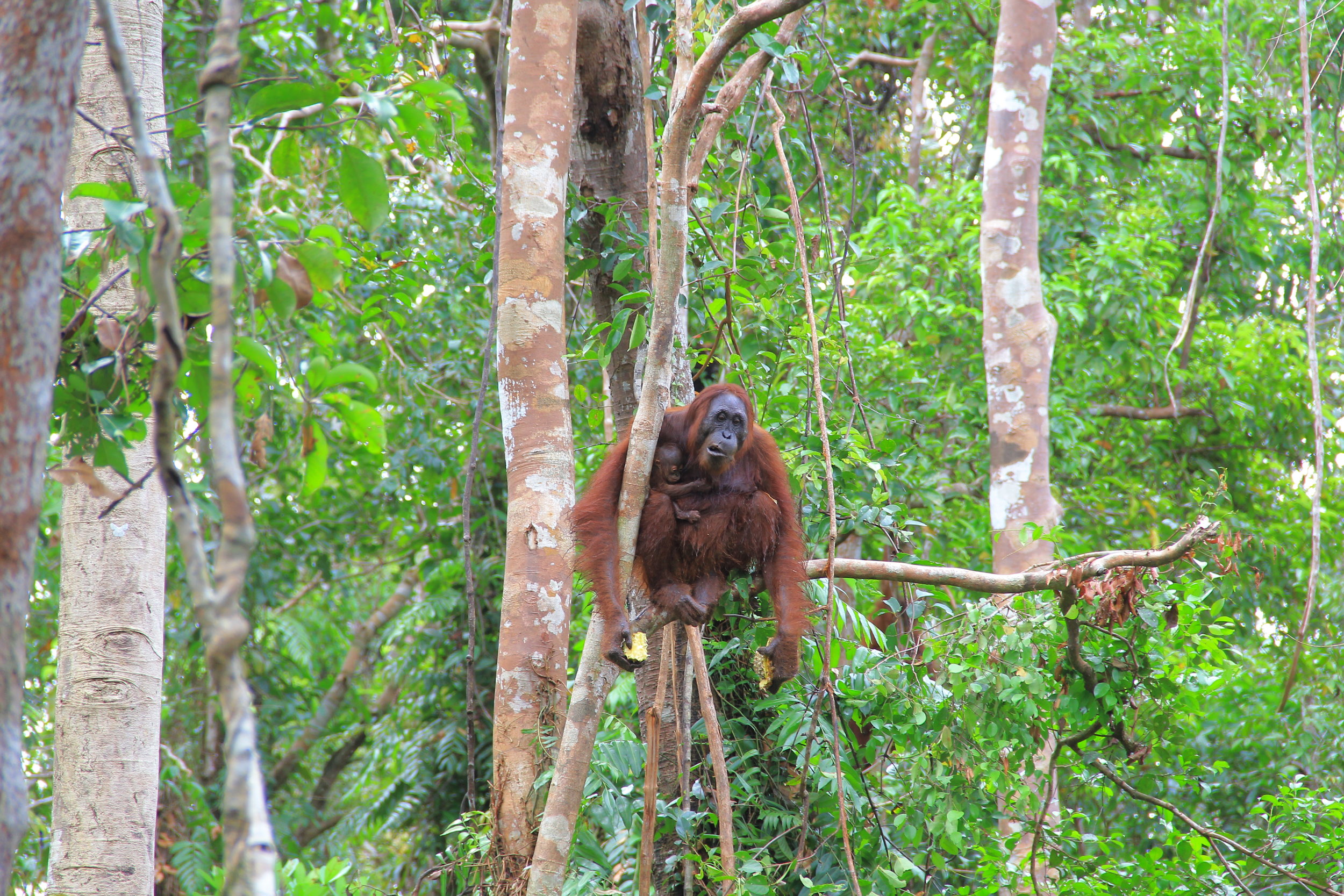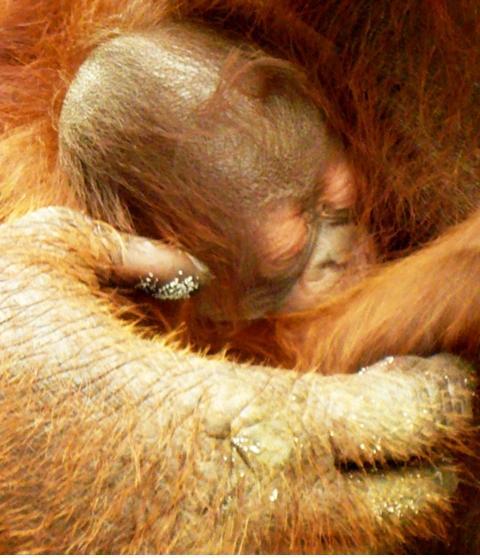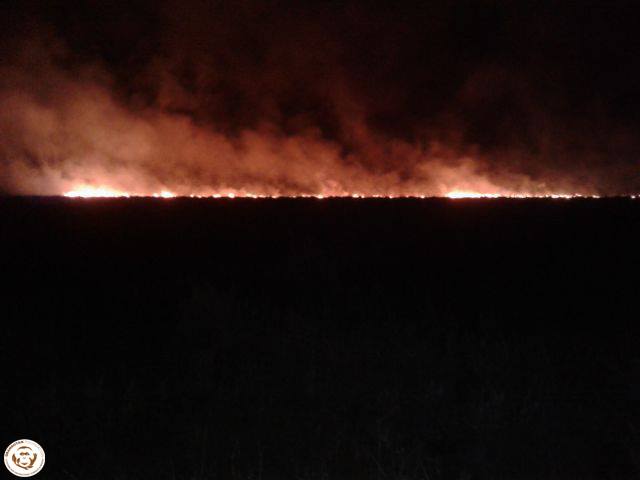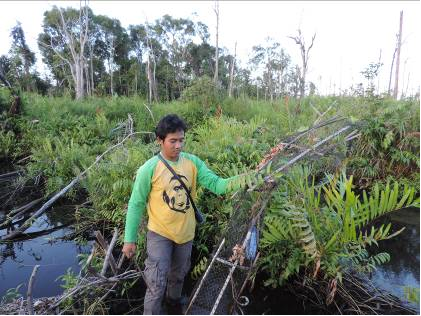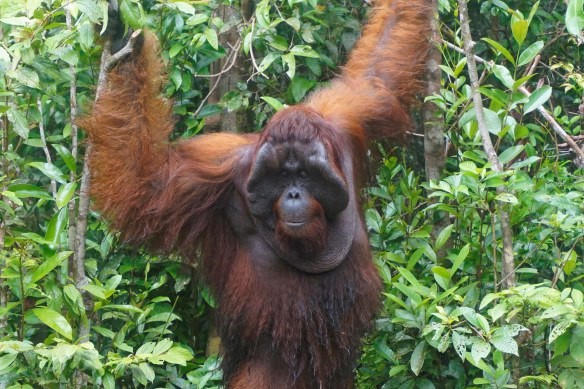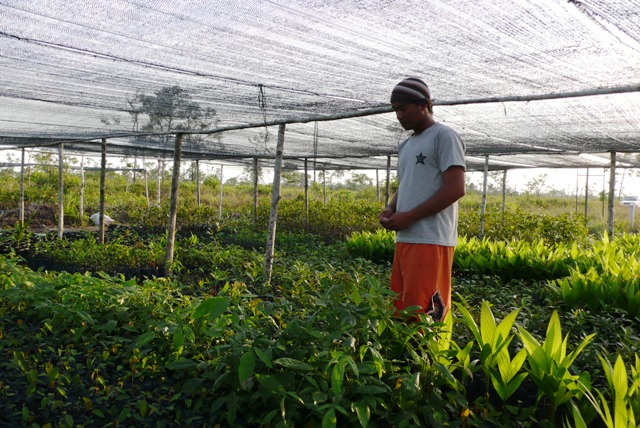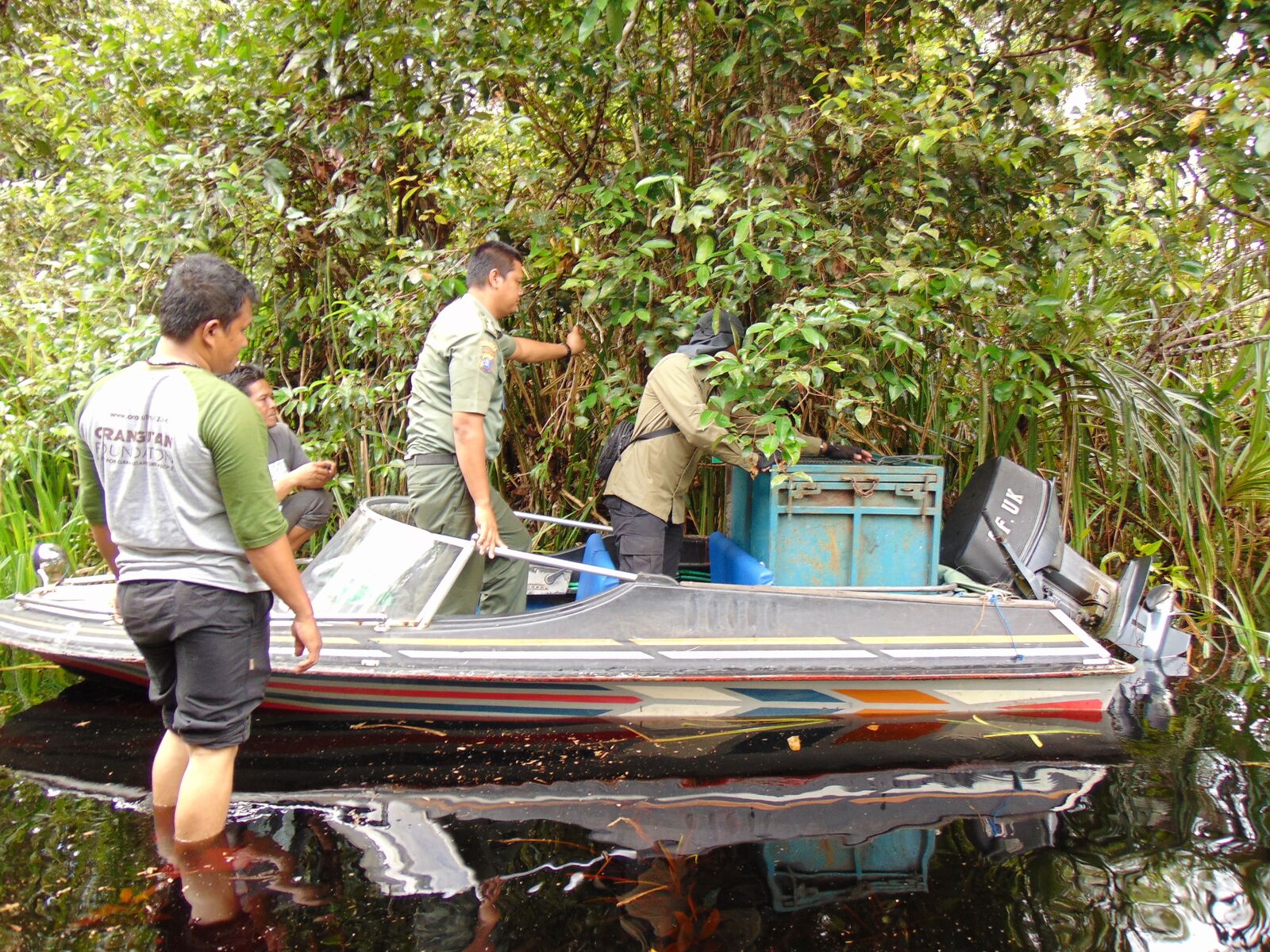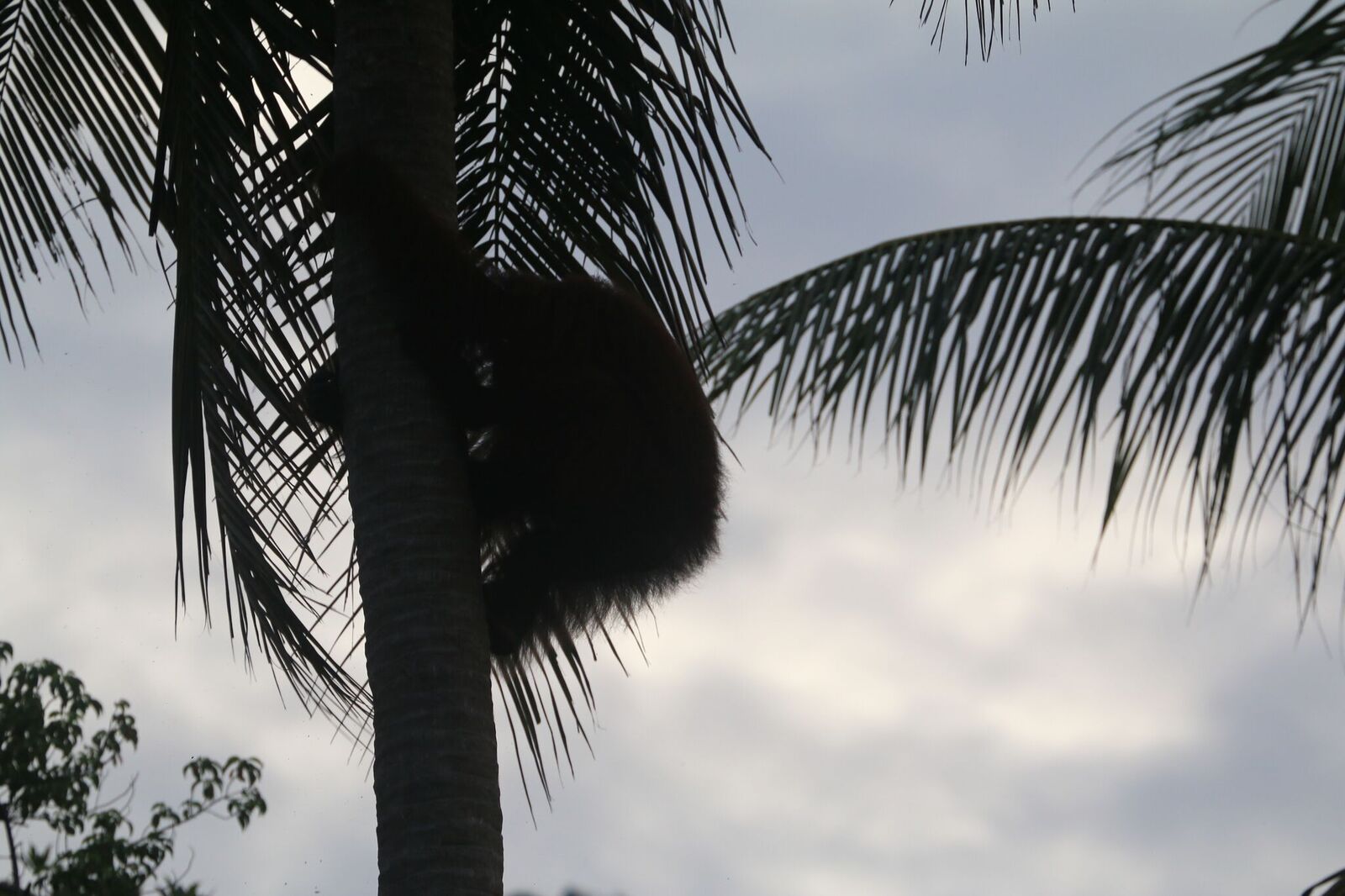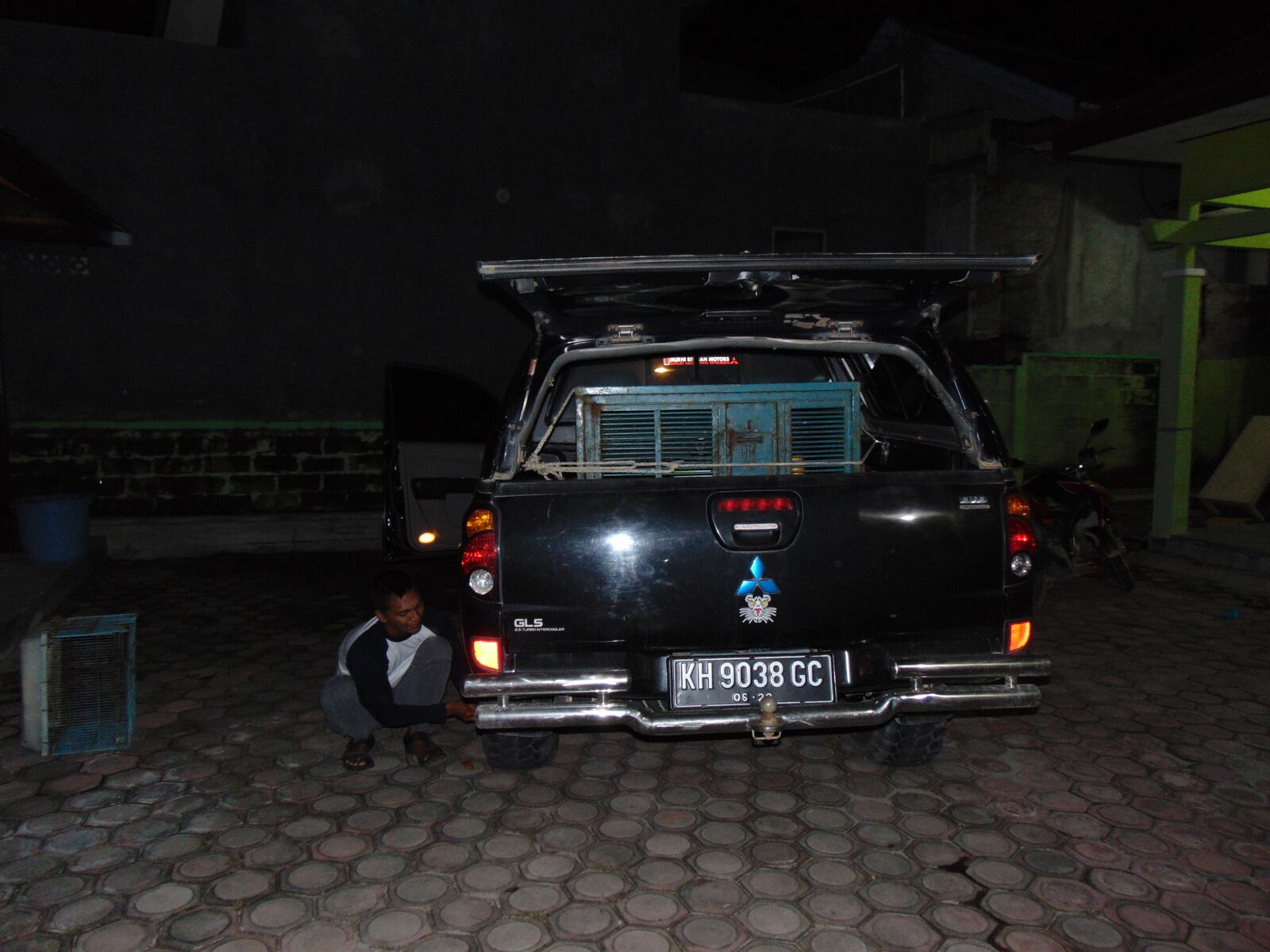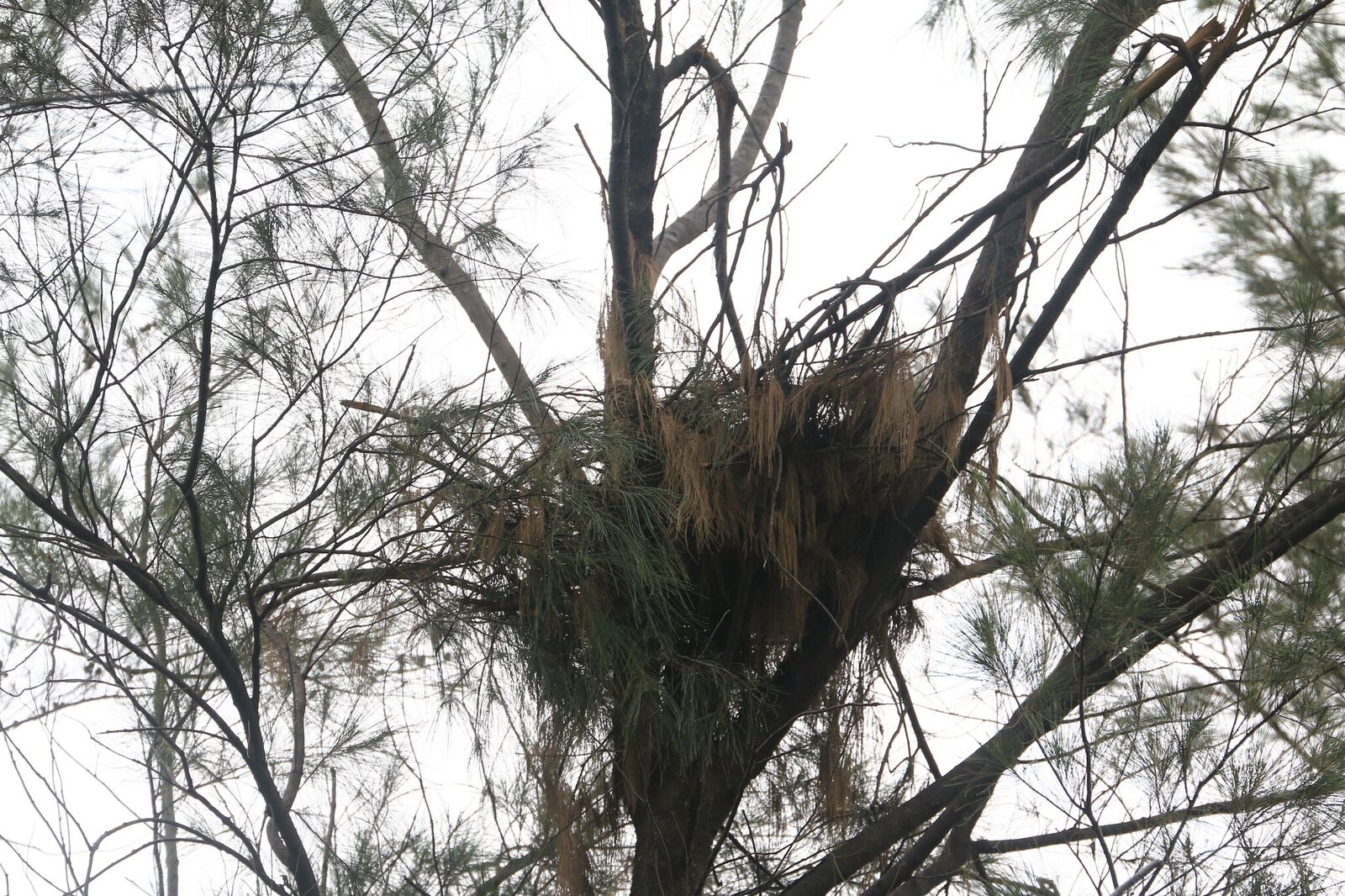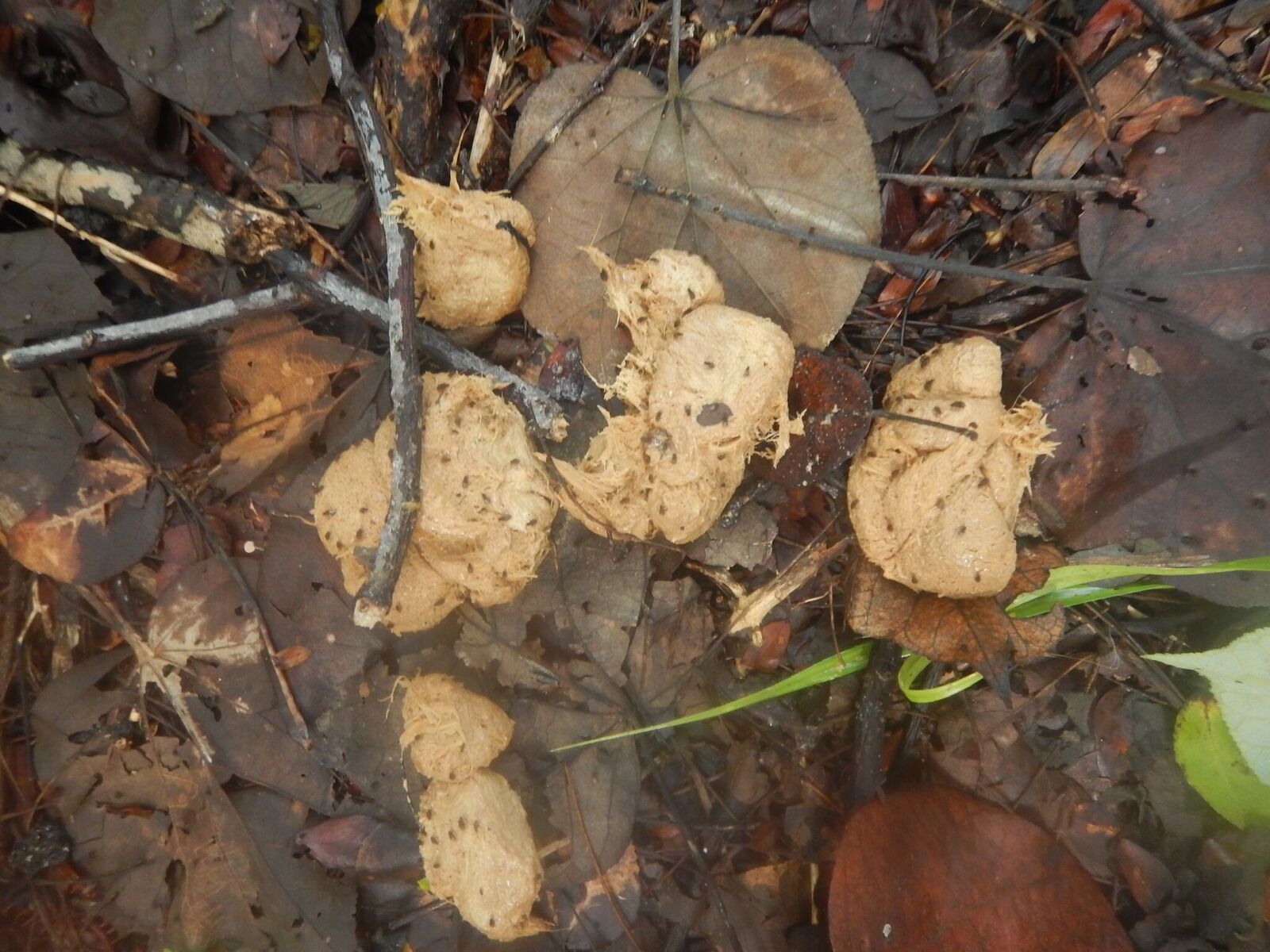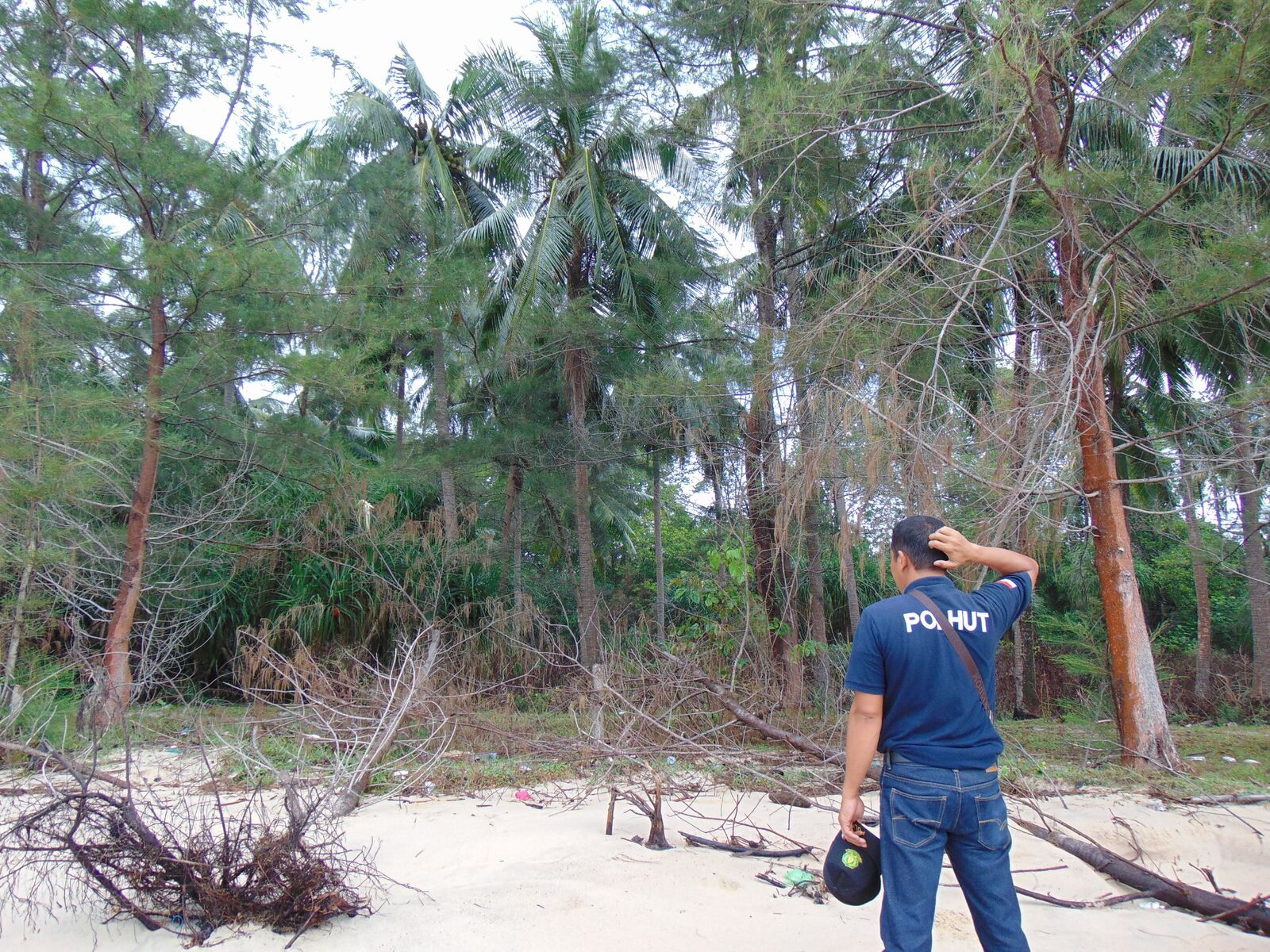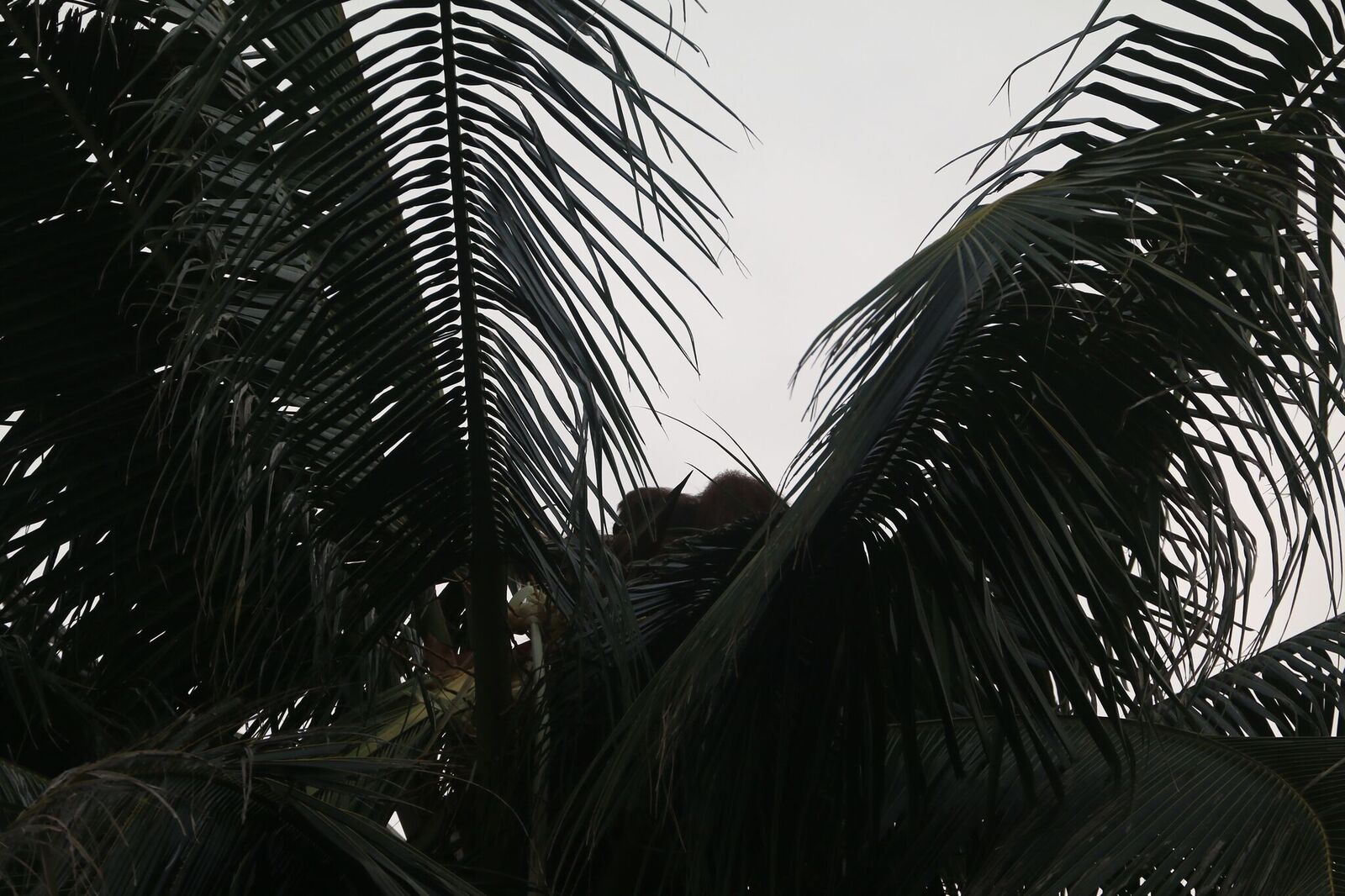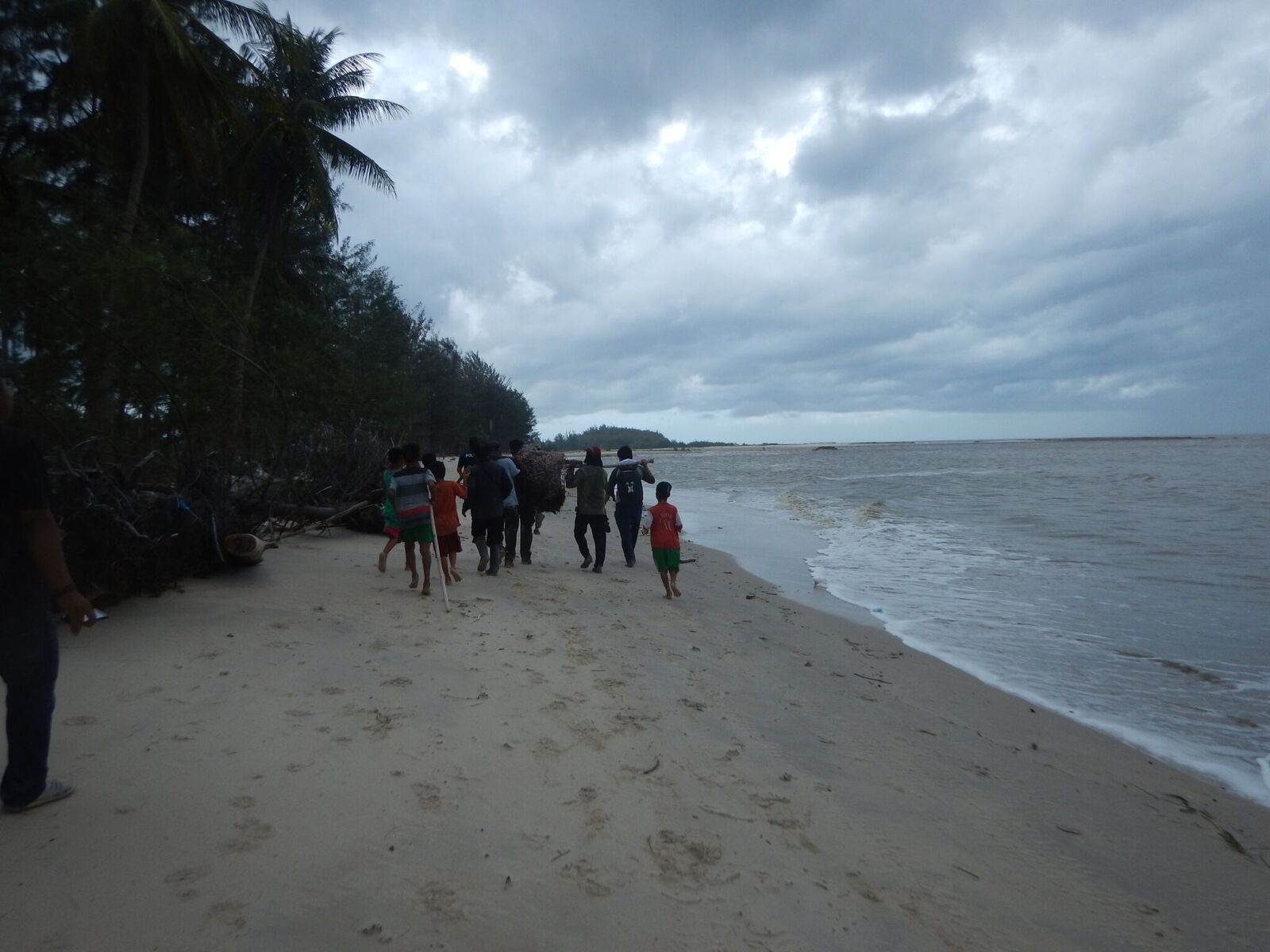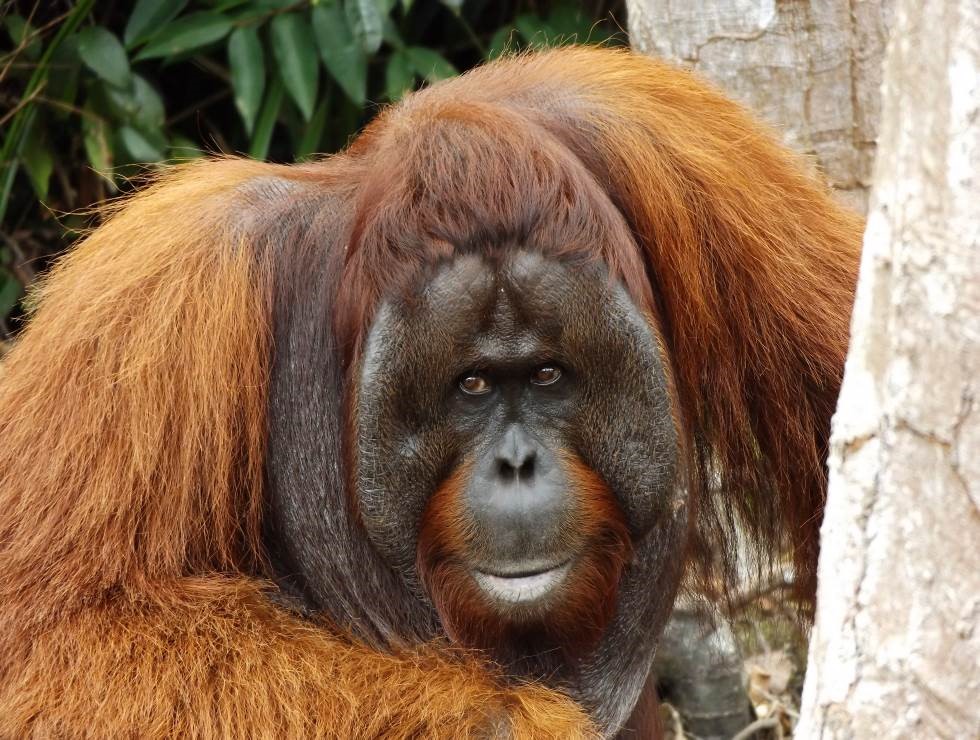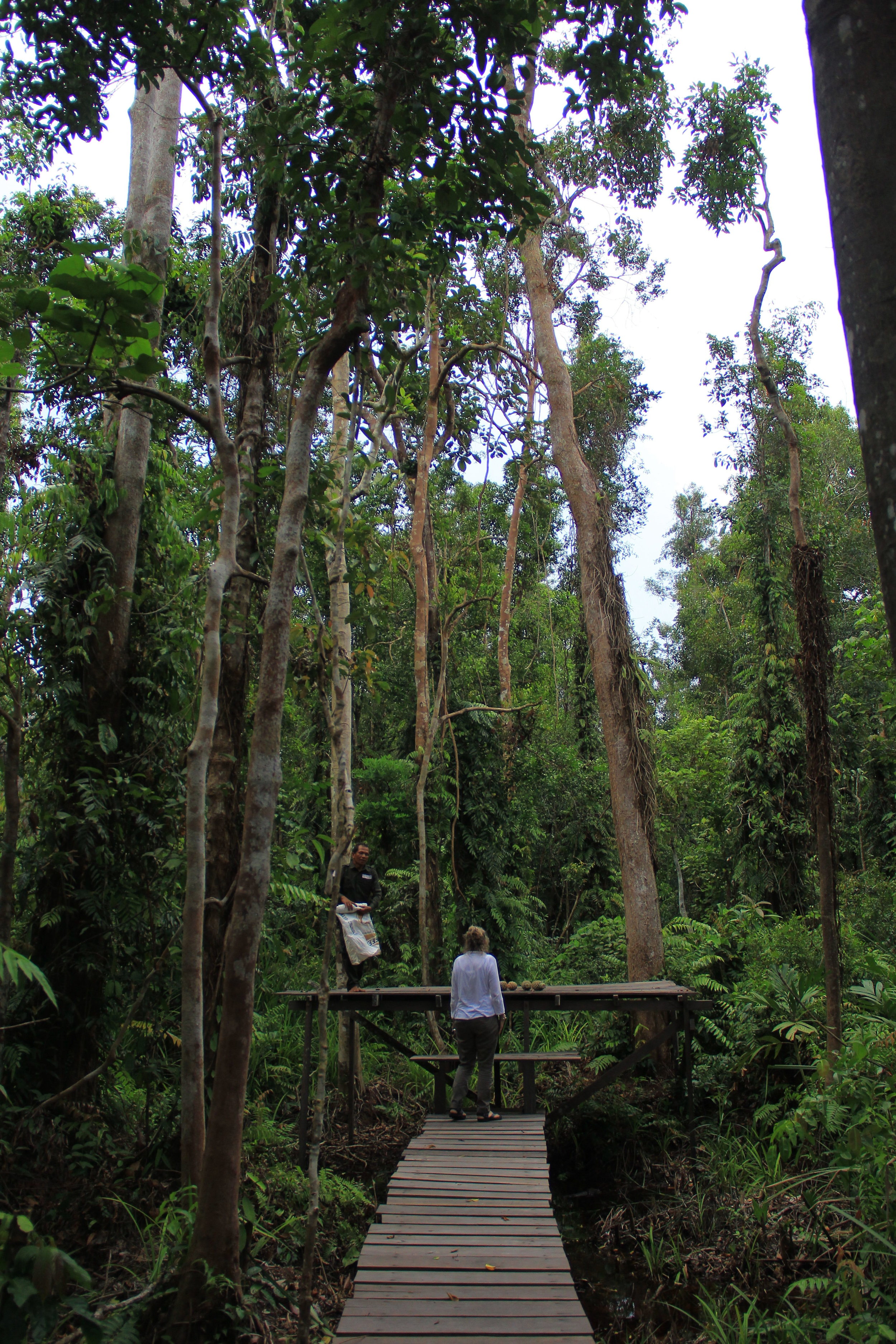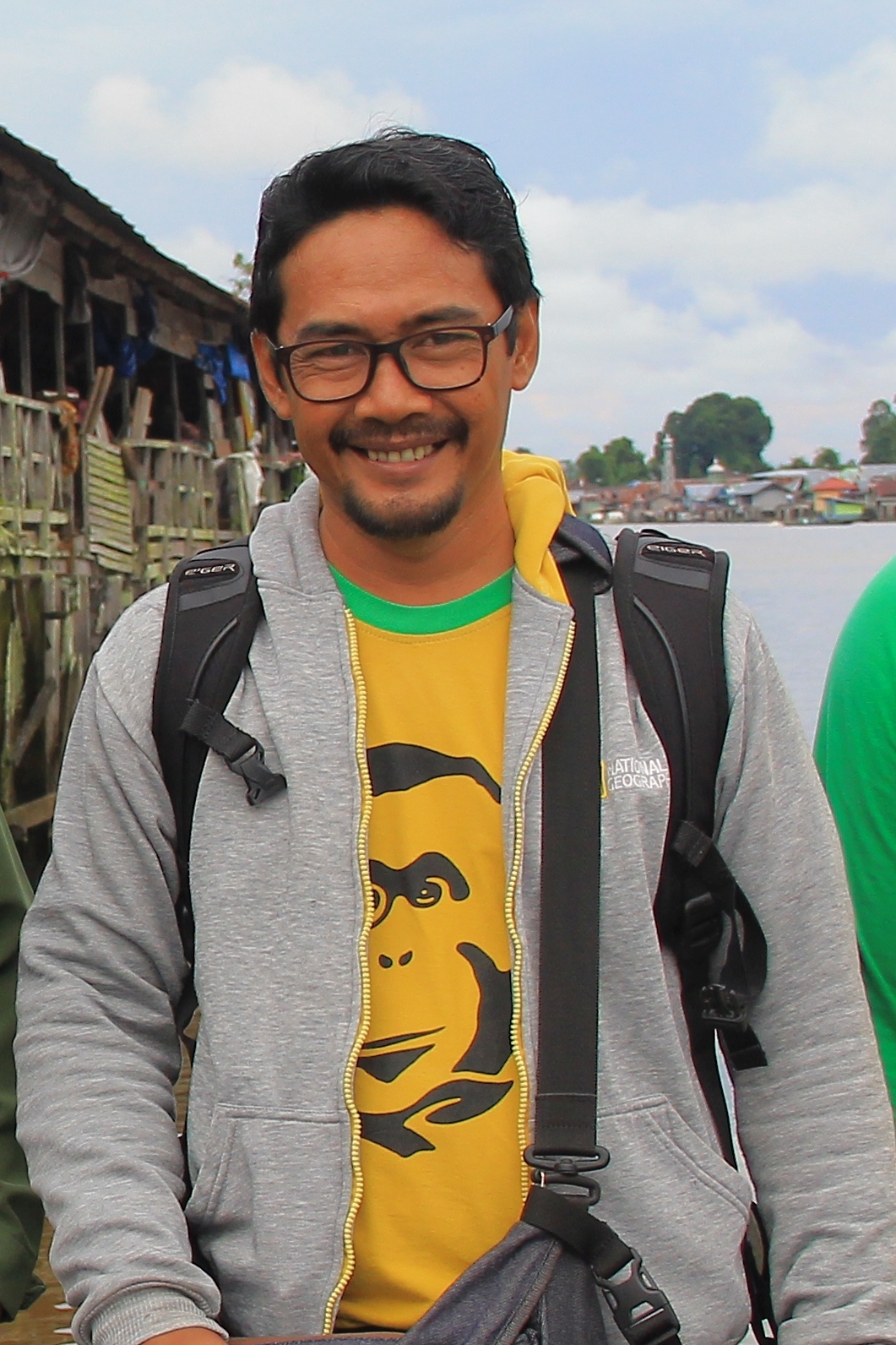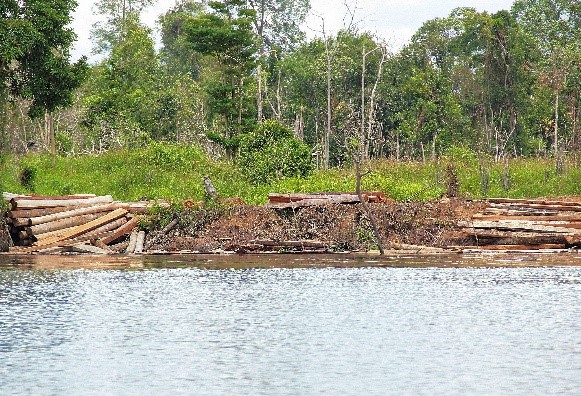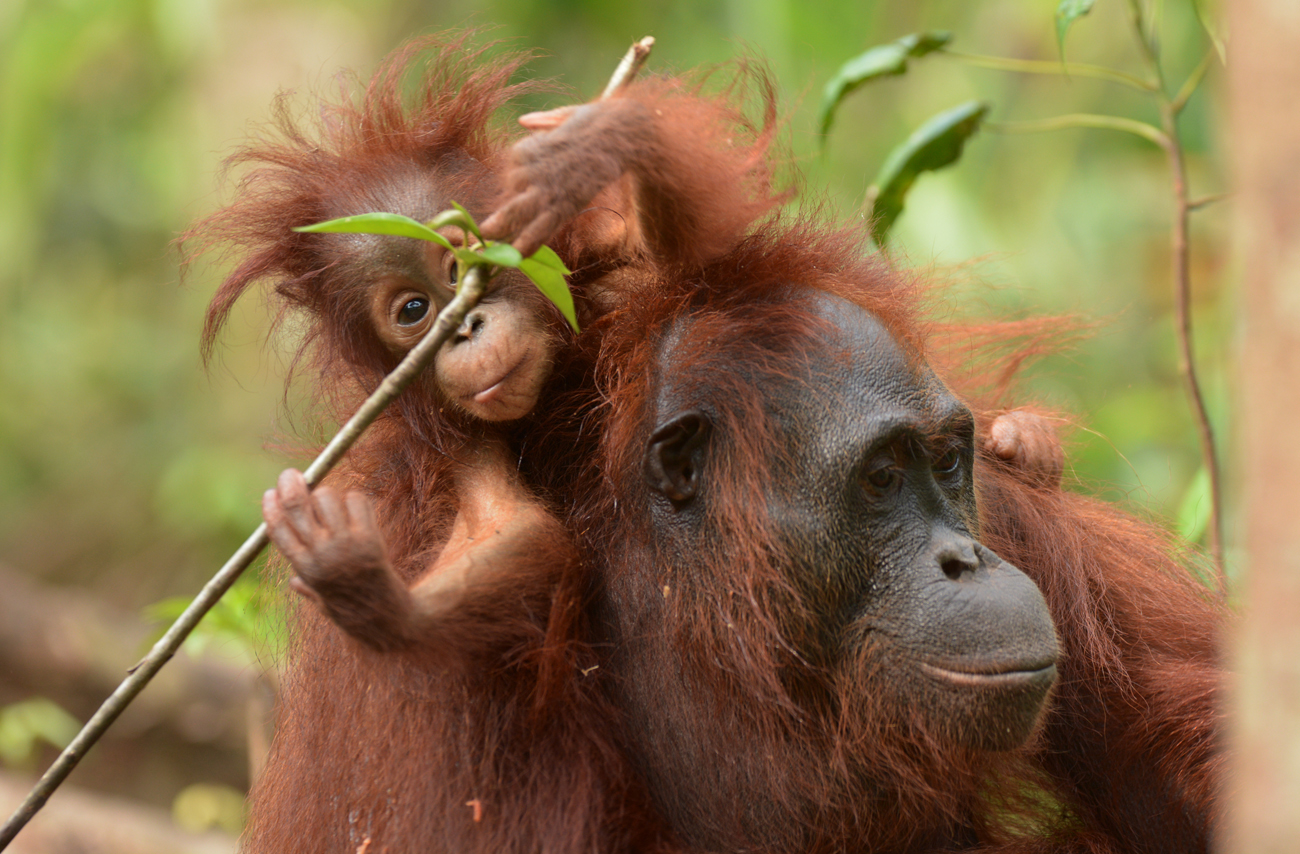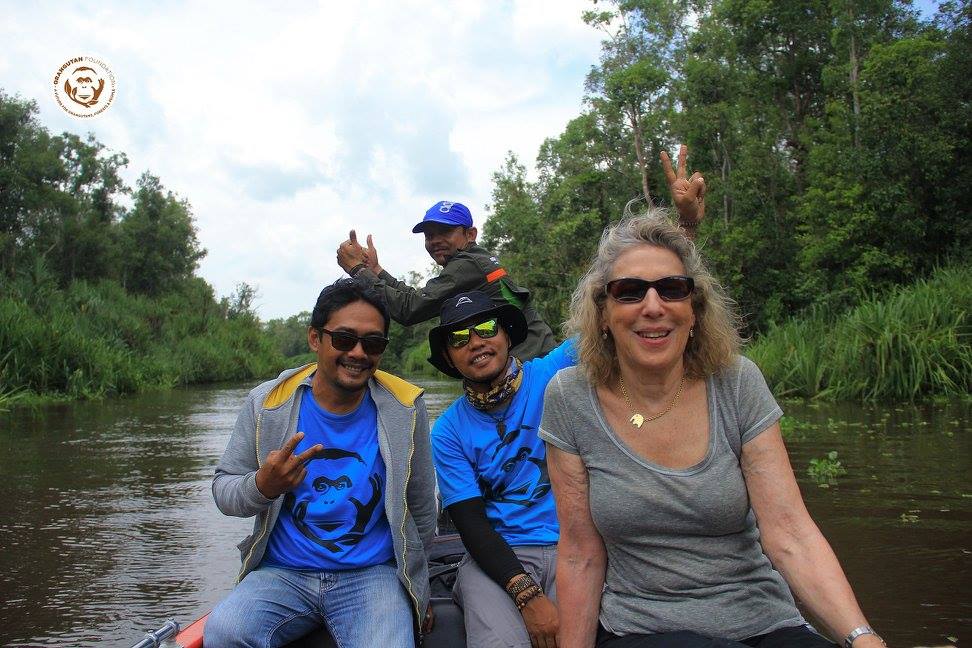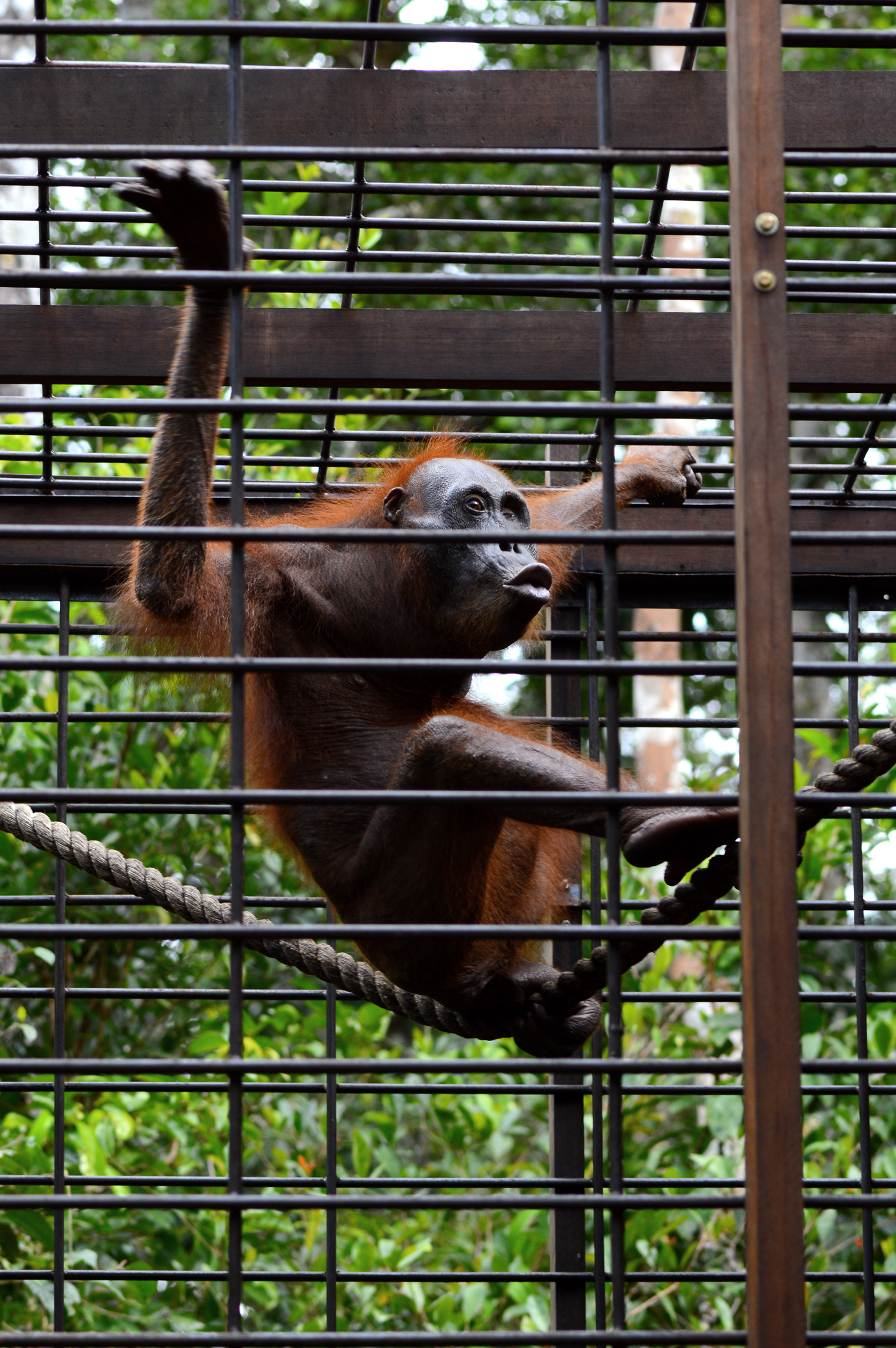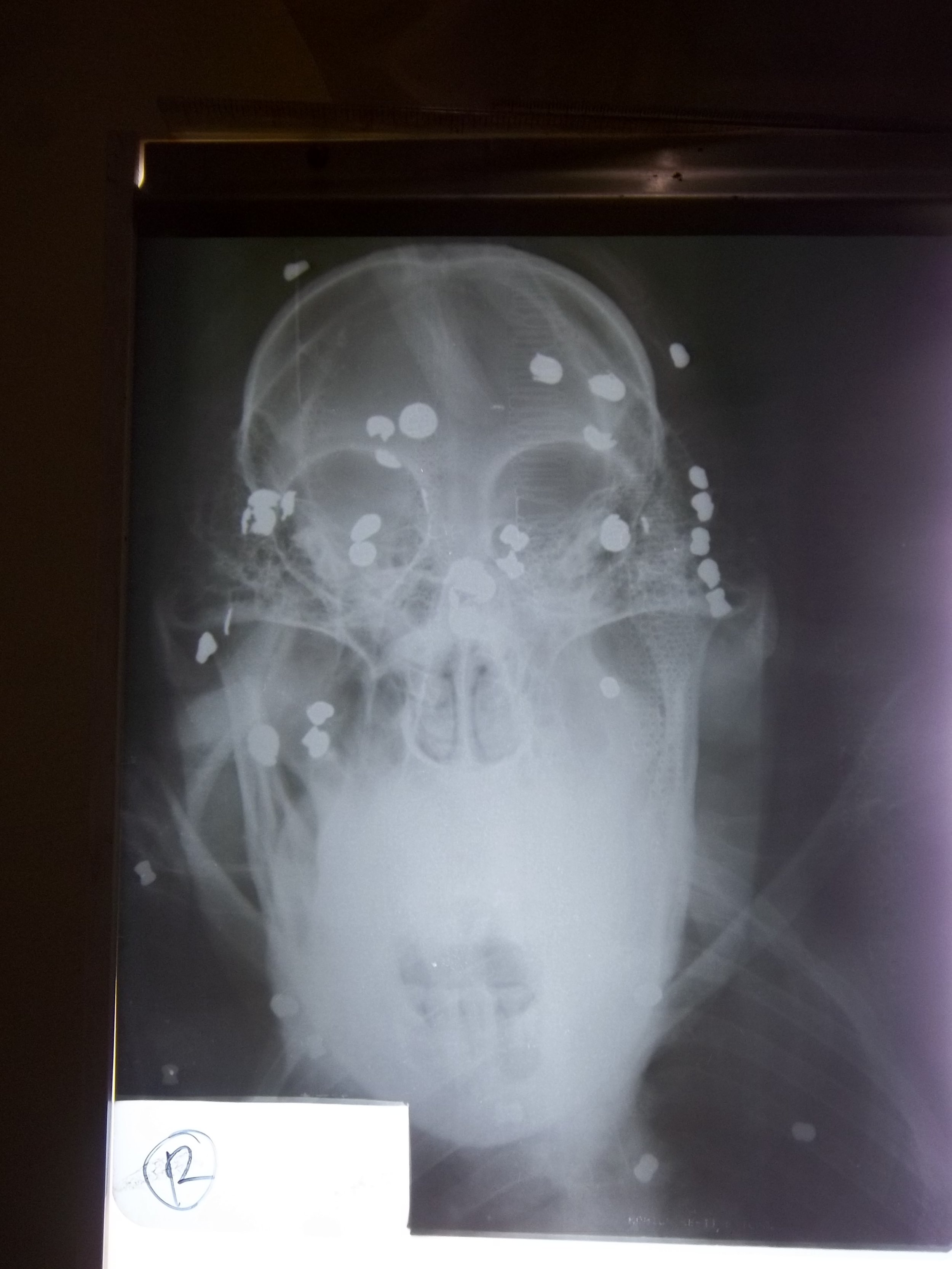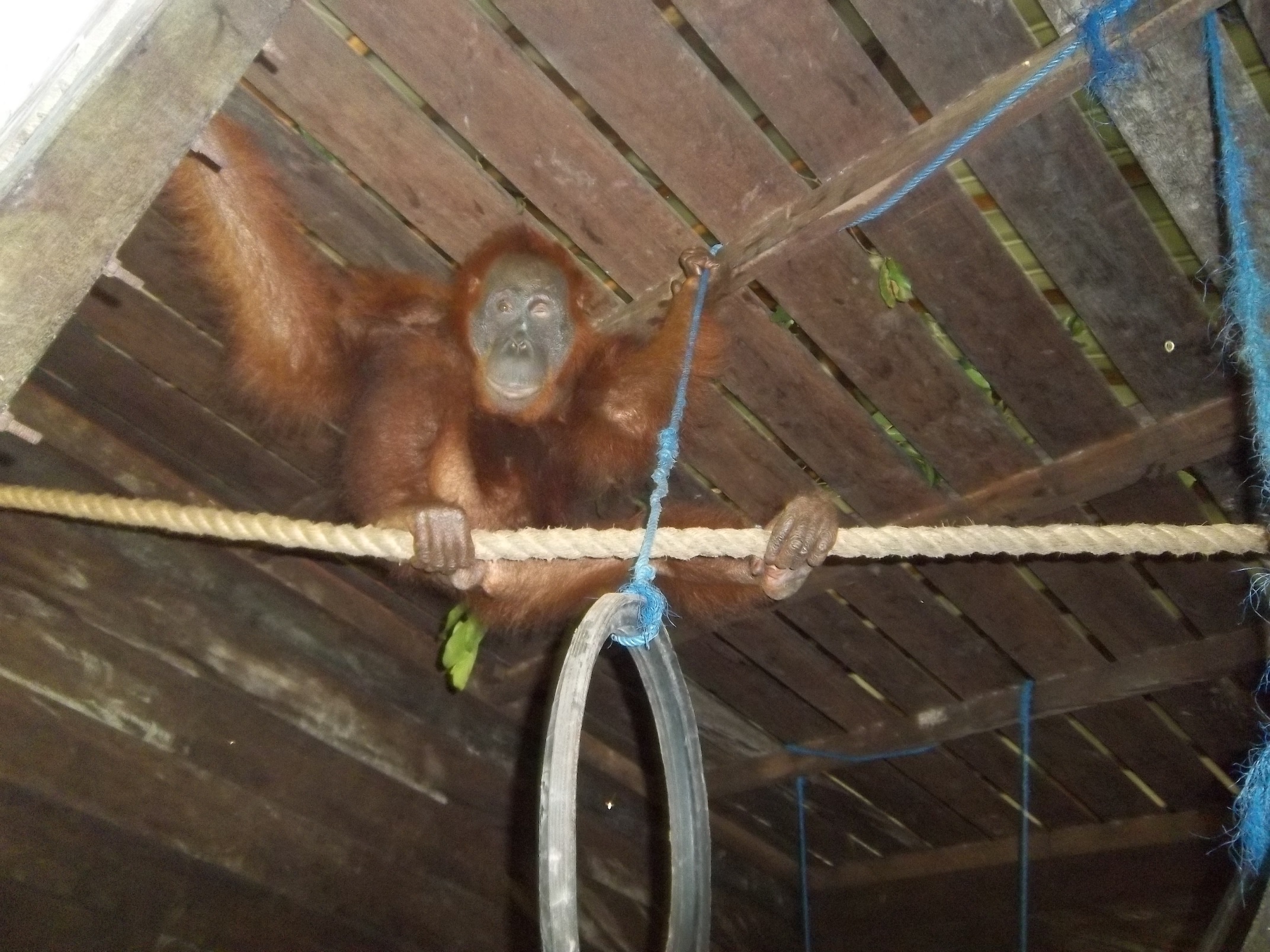Most people’s idea of orangutan conservation would evoke a picture of a life in the wild, tracking these charismatic apes through the forest, rescuing and releasing them into a sunlit canopy. While this is one element, the reality of our work is a much bigger picture.
Release of orangutan back into the wild
Orangutan conservation must address the complex issues affecting the wider landscape and habitat, and this involves an in-depth understanding of land management and negotiation with government, communities, and private sector stakeholders. It sometimes feels far from the animals in the forest, but it’s fundamental to their future survival.
This week, Orangutan Foundation and the Central Kalimantan Wildlife Department (BKSDA) held a workshop on Management of Wildlife in Protected Forest and Production Forest Areas and a Forum on Orangutans and Oil-Palm Plantations. There were more than 30 participants from parties including the Directorate of Biodiversity Conservation (KKH), Ditjend KSDAE-Ministry of LHK, Central Kalimantan Orangutan Forum (Forkah), Central Kalimantan Forest Service, Orangutan Foundation (OF-UK Indonesia), Korindo Group, Wilmar Group, and Central Kalimantan BKSDA.
Workshop participants including Directorate of Biodiversity Conservation (KKH), Ditjend KSDAE-Ministry of LHK, Central Kalimantan Orangutan Forum (Forkah), Central Kalimantan Forest Service, Orangutan Foundation (OF-UK Indonesia), Korindo Group, Wilmar Group, and Central Kalimantan BKSDA.
Forum on Orangutan and Oil-Palm Plantations
The big issue for the Bornean Orangutan species is that 80% of the population are extremely vulnerable, as they live in forest habitats with no active protection (i.e. not inside a national park or wildlife reserve).
Active habitat protection: Orangutan Foundation guard post monitoring the Lamandau Wildlife Reserve, Central Kalimantan Indonesian Borneo
These forests, which have been shrinking dramatically over the last few decades, and the animals that live there, are at risk as most of them are in active ‘concessions’ – areas where access to the land has been granted for some form of industrial use. There are many different legal designations, including natural timber concessions, industrial timber plantations and areas of forest still remaining inside oil-palm concessions, as well as forests on community lands. There are also areas of ‘Hutan Lindung’, Protection Forest, a special designation where the forest provides a wider ecosystem service to protect soils and water catchment. Proper management of these forests is crucial to mitigate conflicts between humans and wildlife and to reduce the number of isolated orangutans that end up needing to be rescued.
At the end of the two days, all of the participants agreed to sign a joint commitment to implementing Best Management Practices focused on the protection of orangutans and wildlife in Production Forests and Protection Forests, as well as in oil-palm plantations. This is a vital step forward in securing the survival of the Bornean orangutan; and for this we are very grateful for the continued support from all our members and donors and in particular, to the Arcus Foundation. The next step is to ensure these commitments made on paper translate to commitments on the ground.
Wild Bornean female and infant orangutan. By Ian Wood





